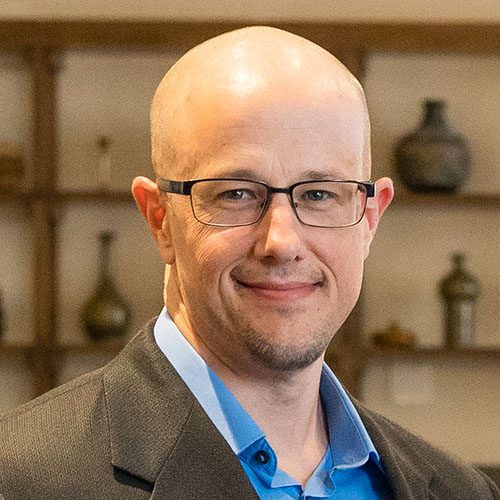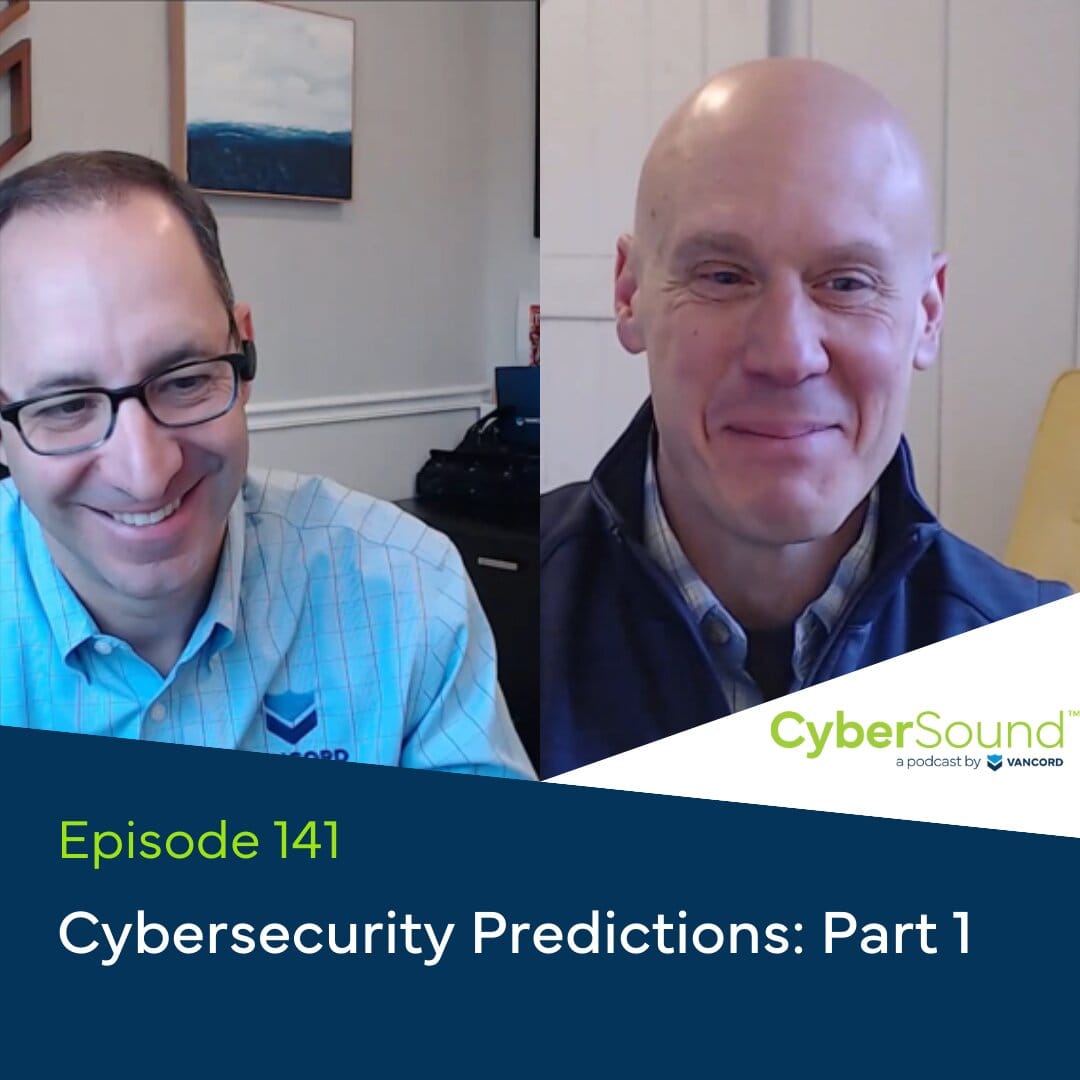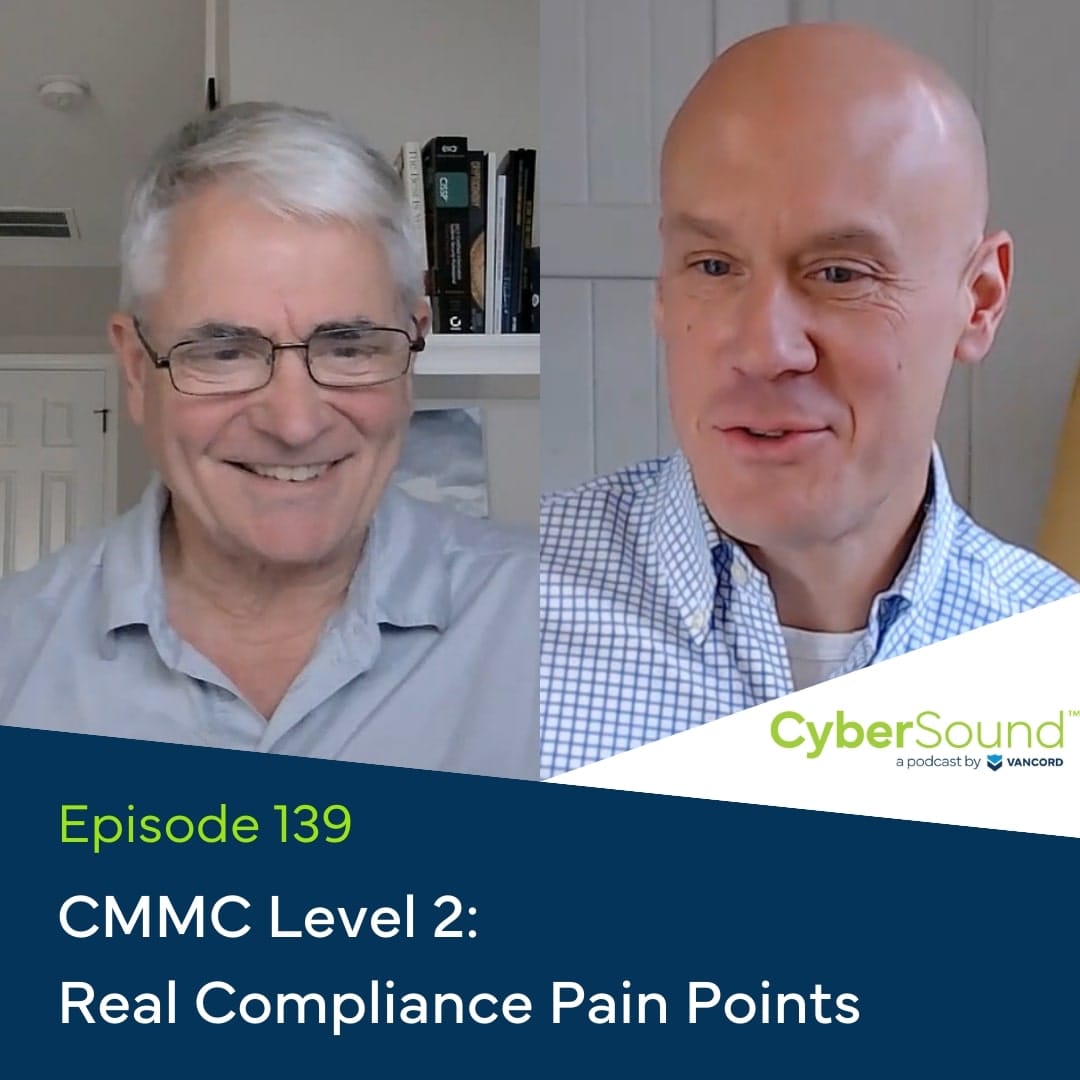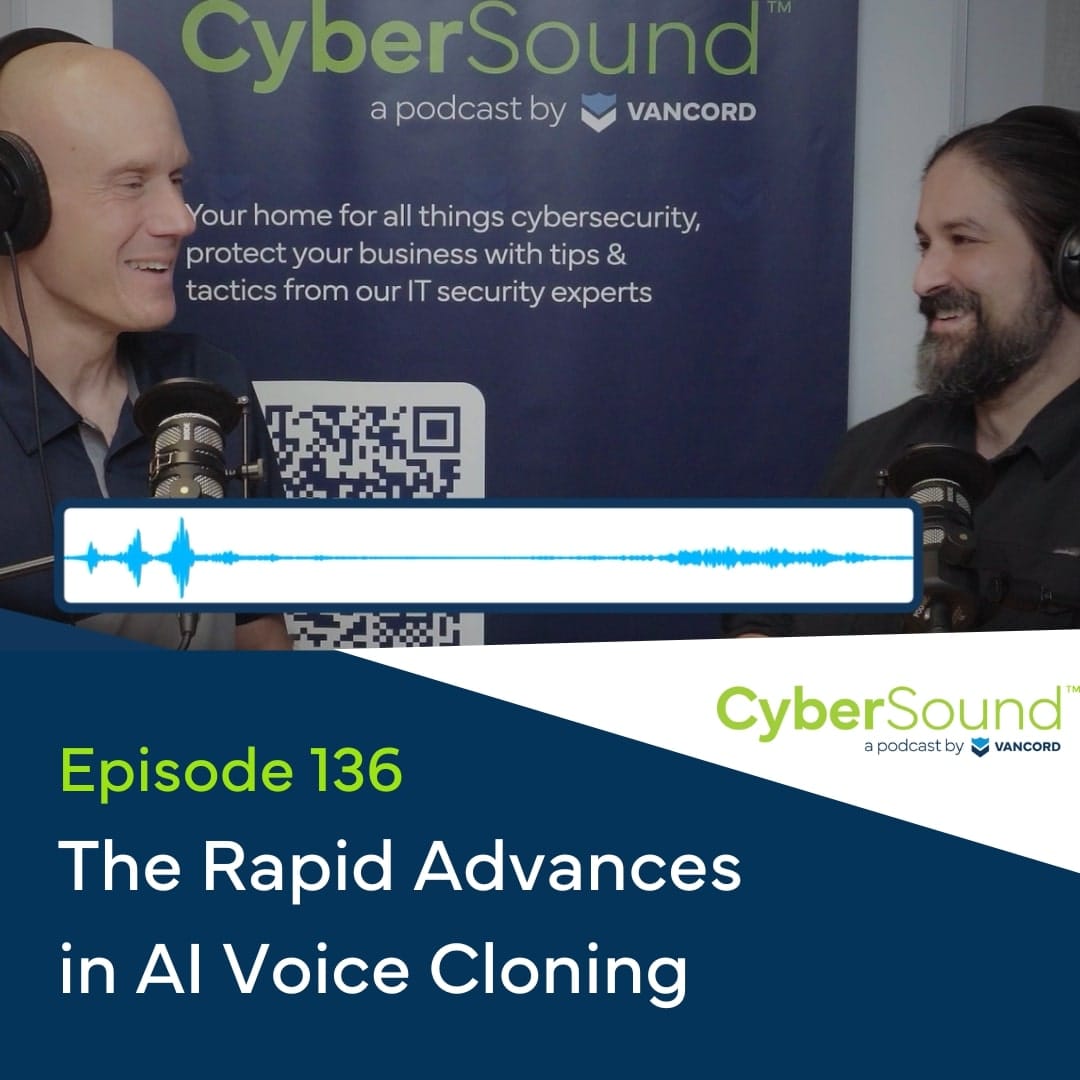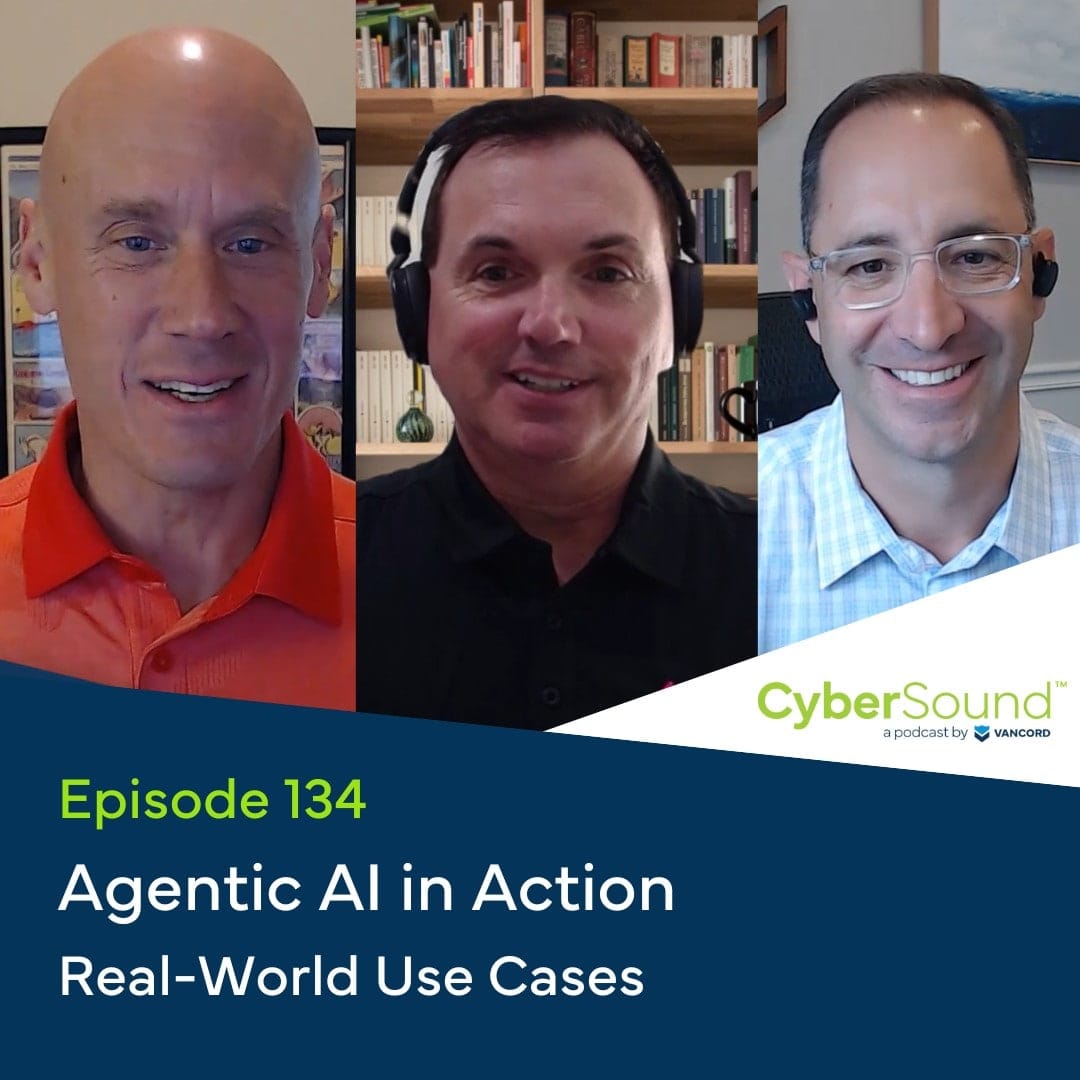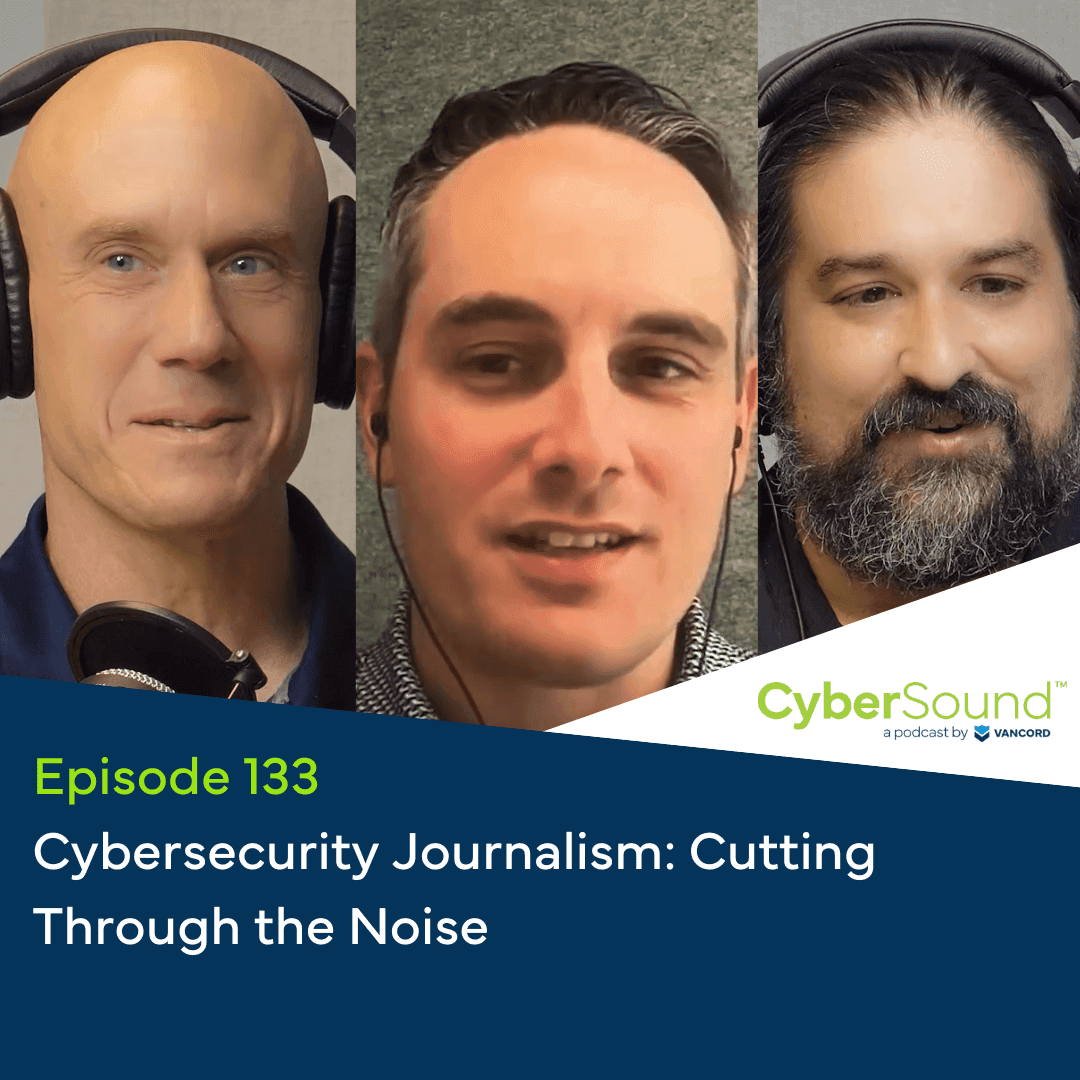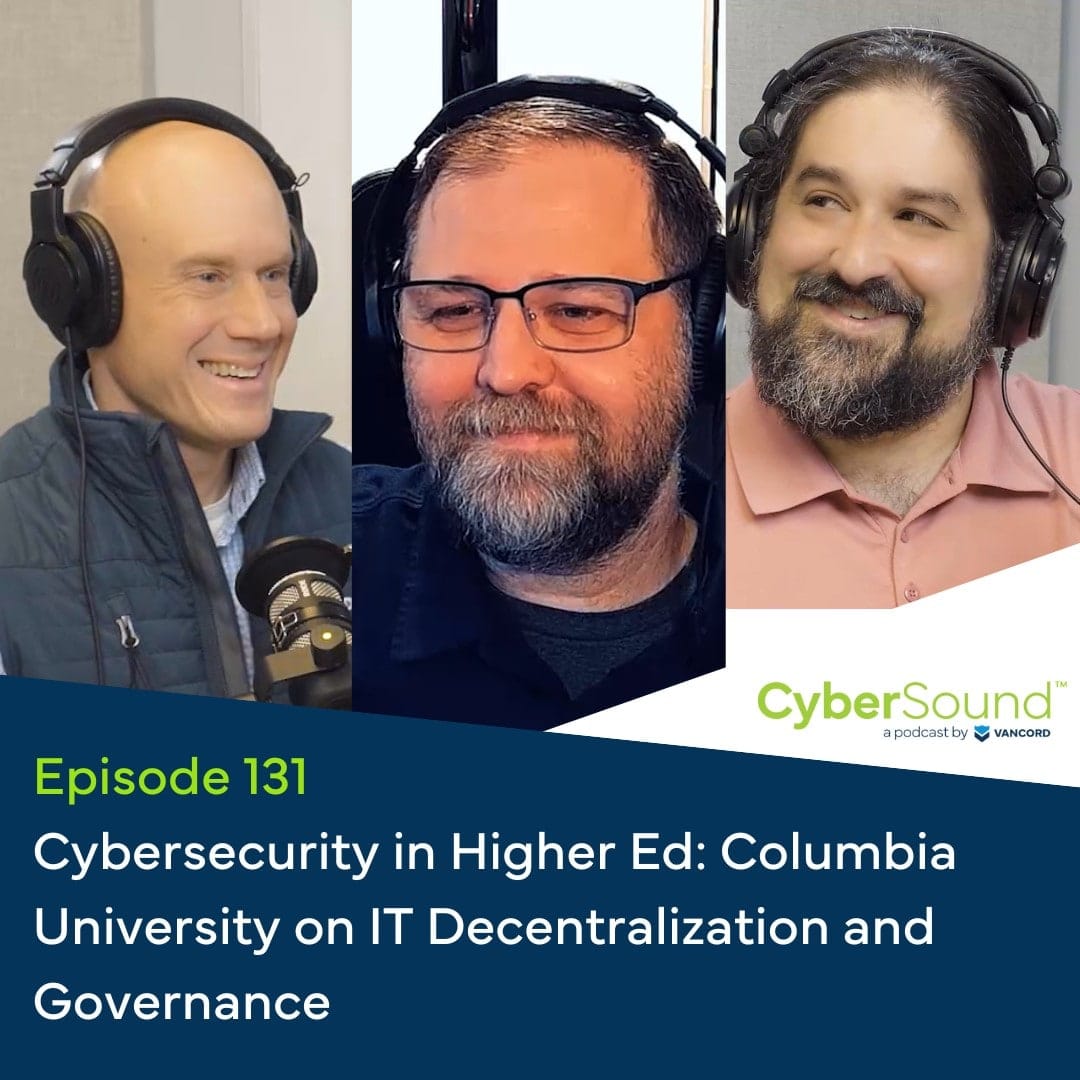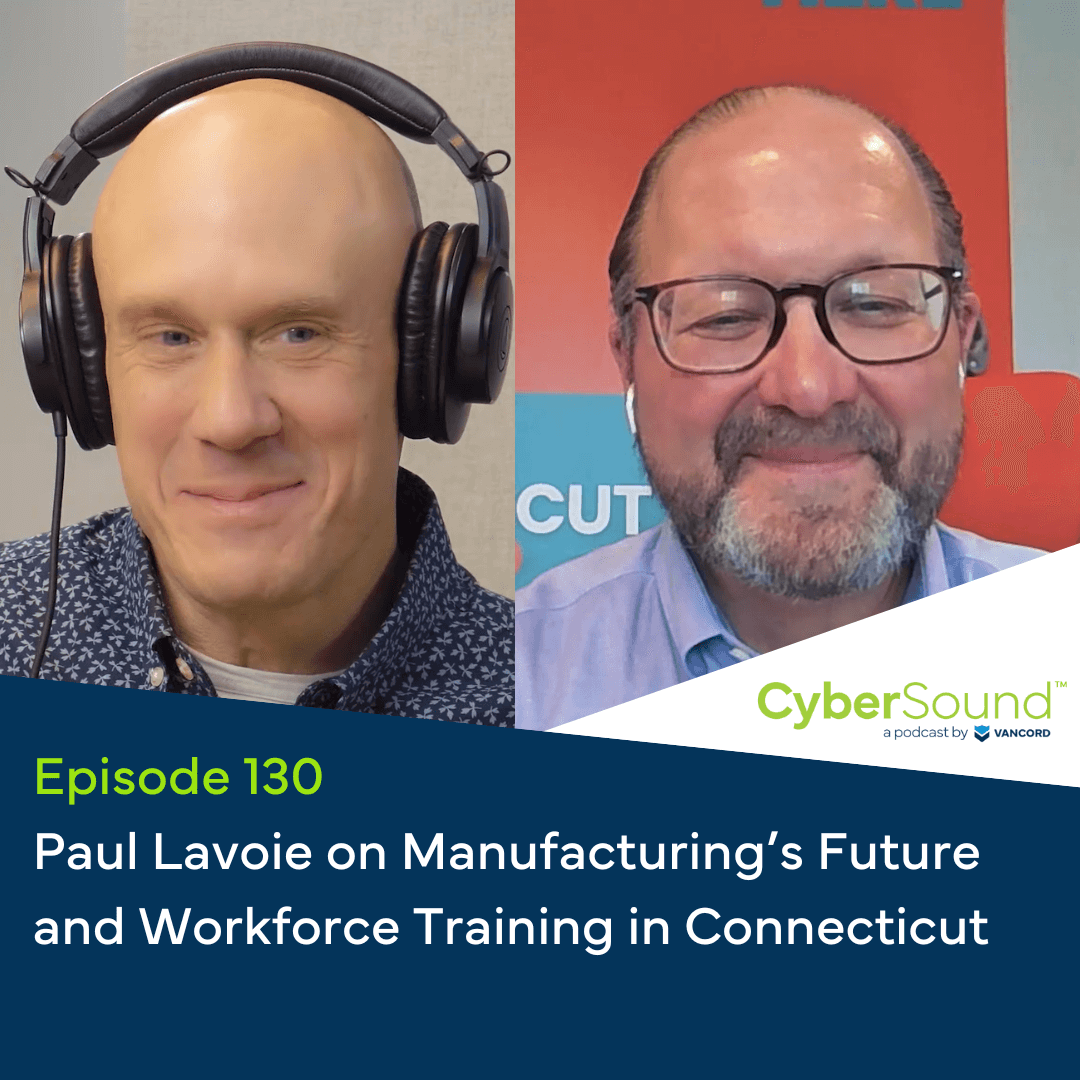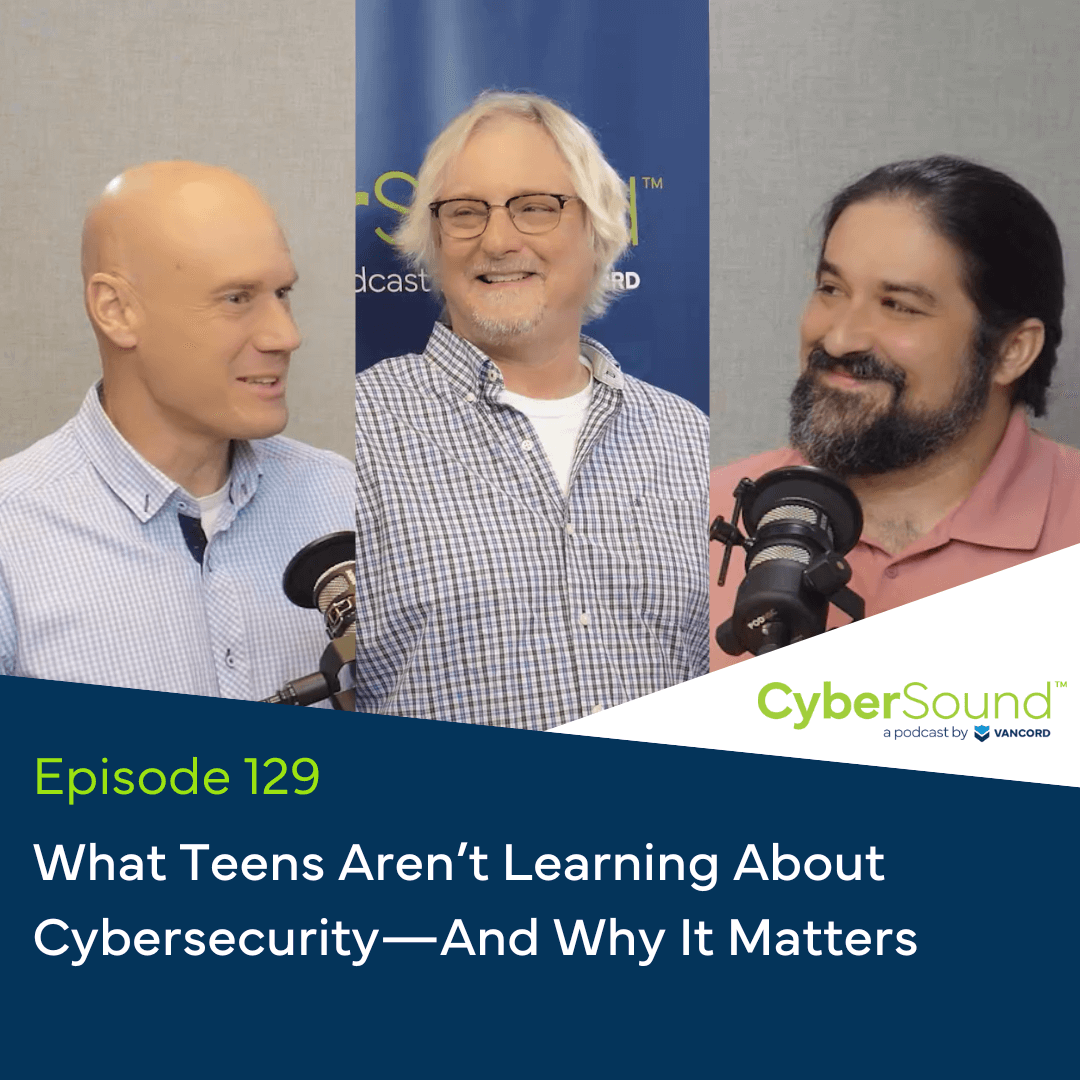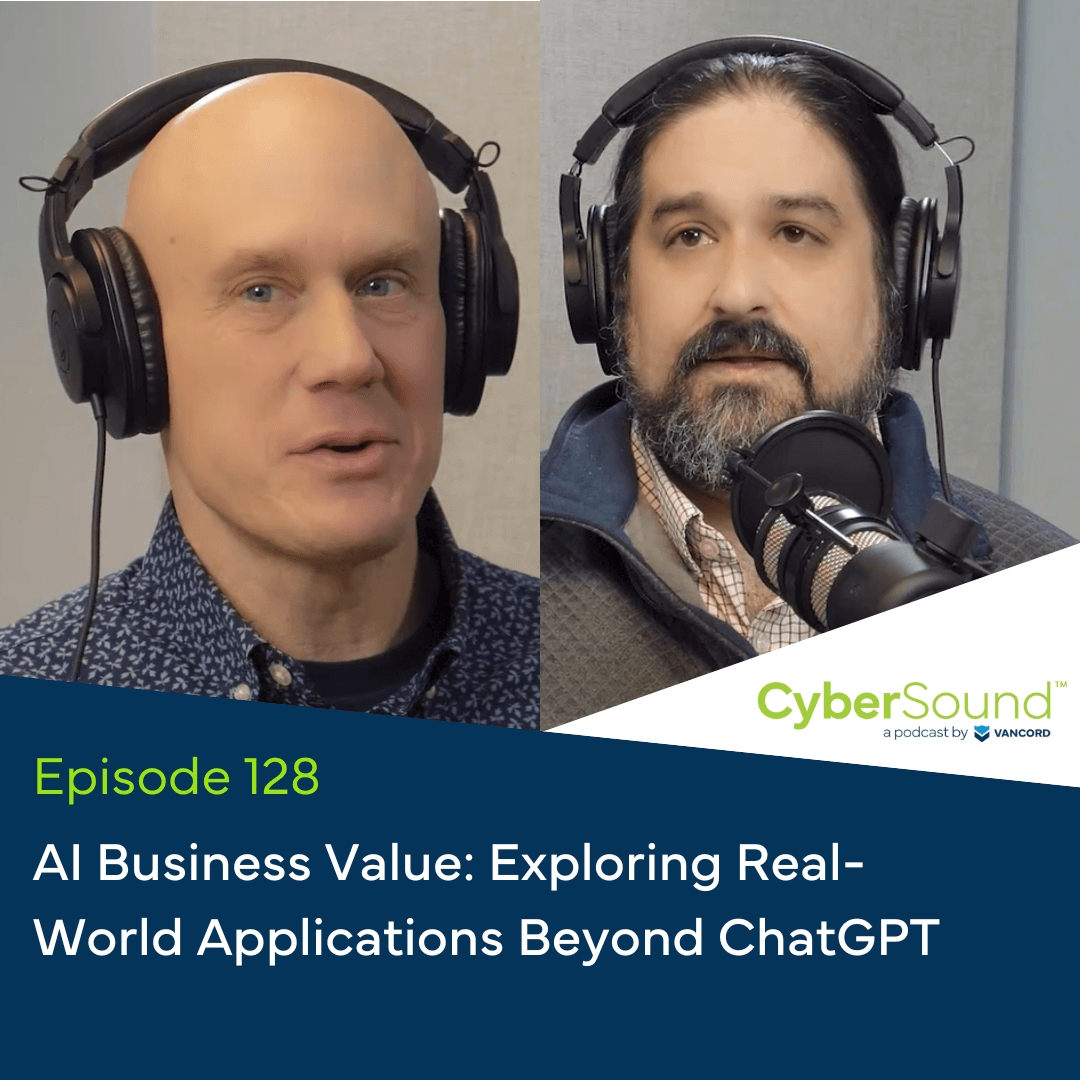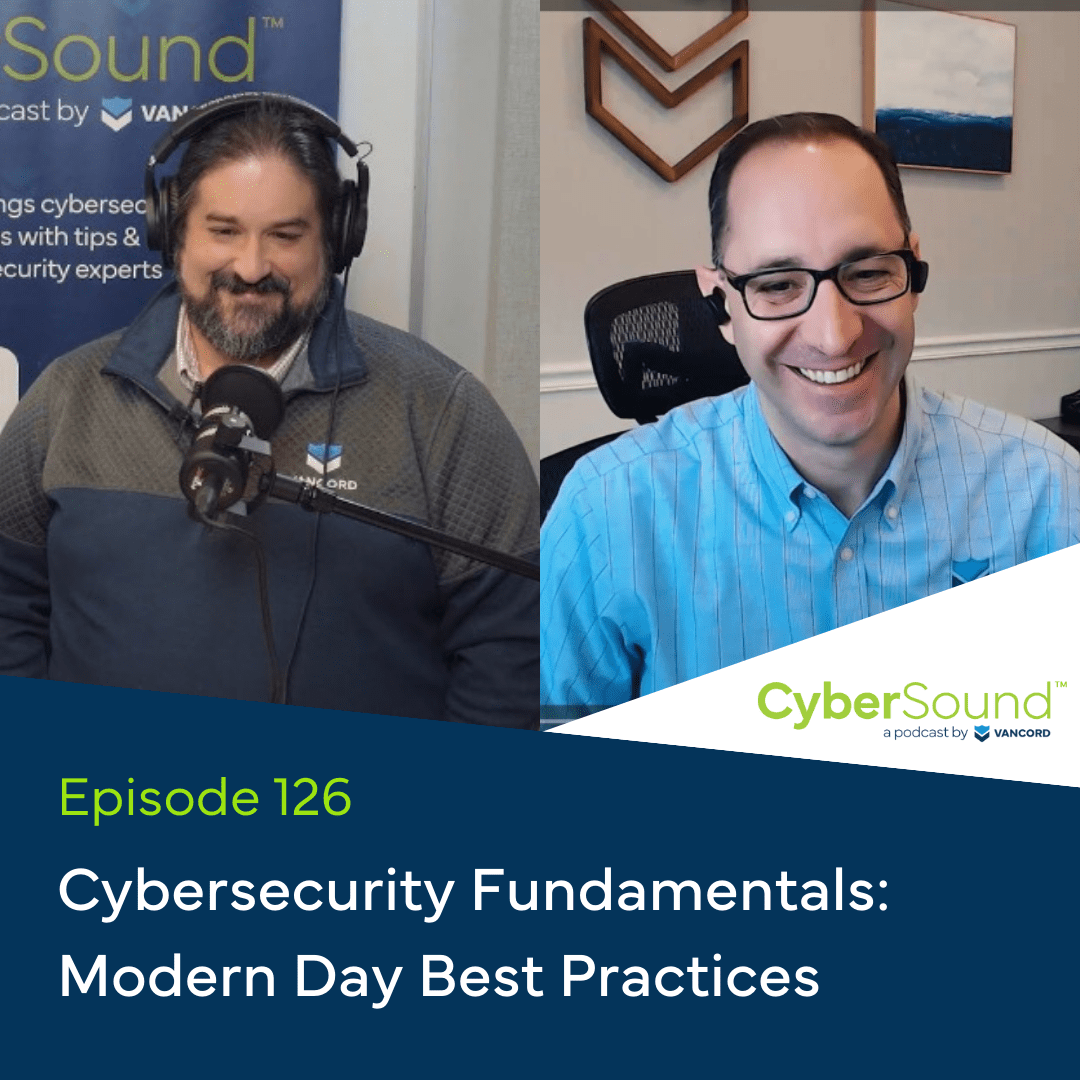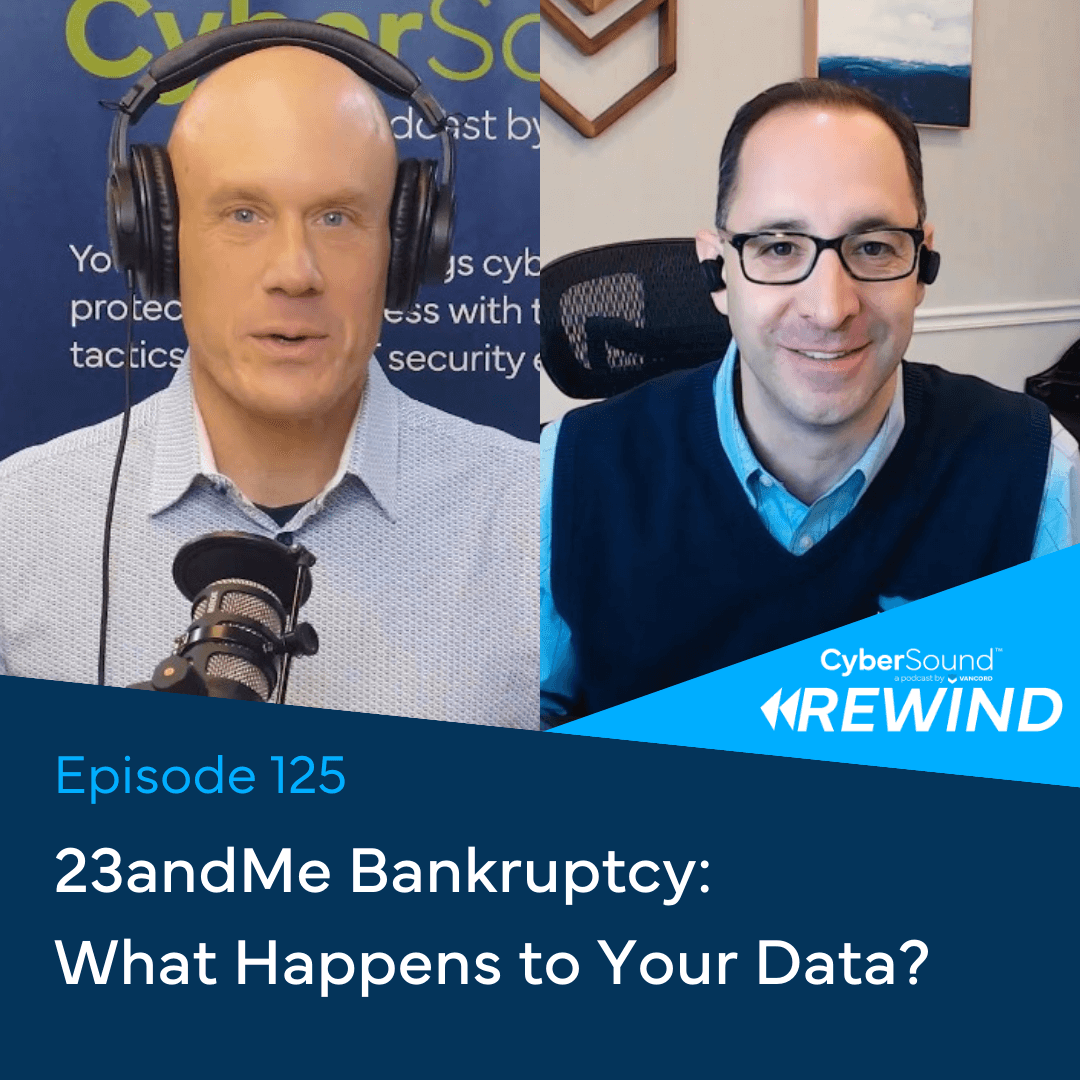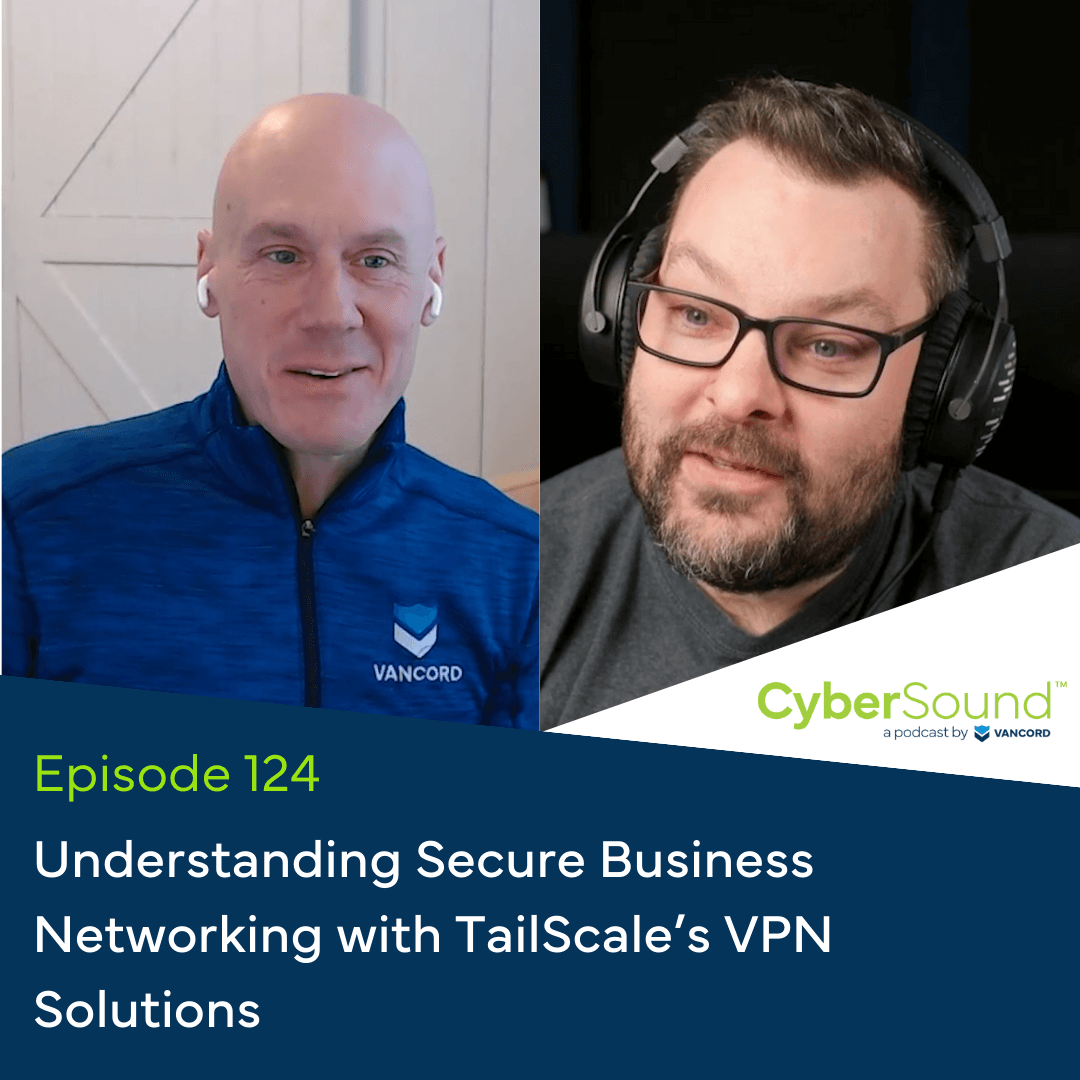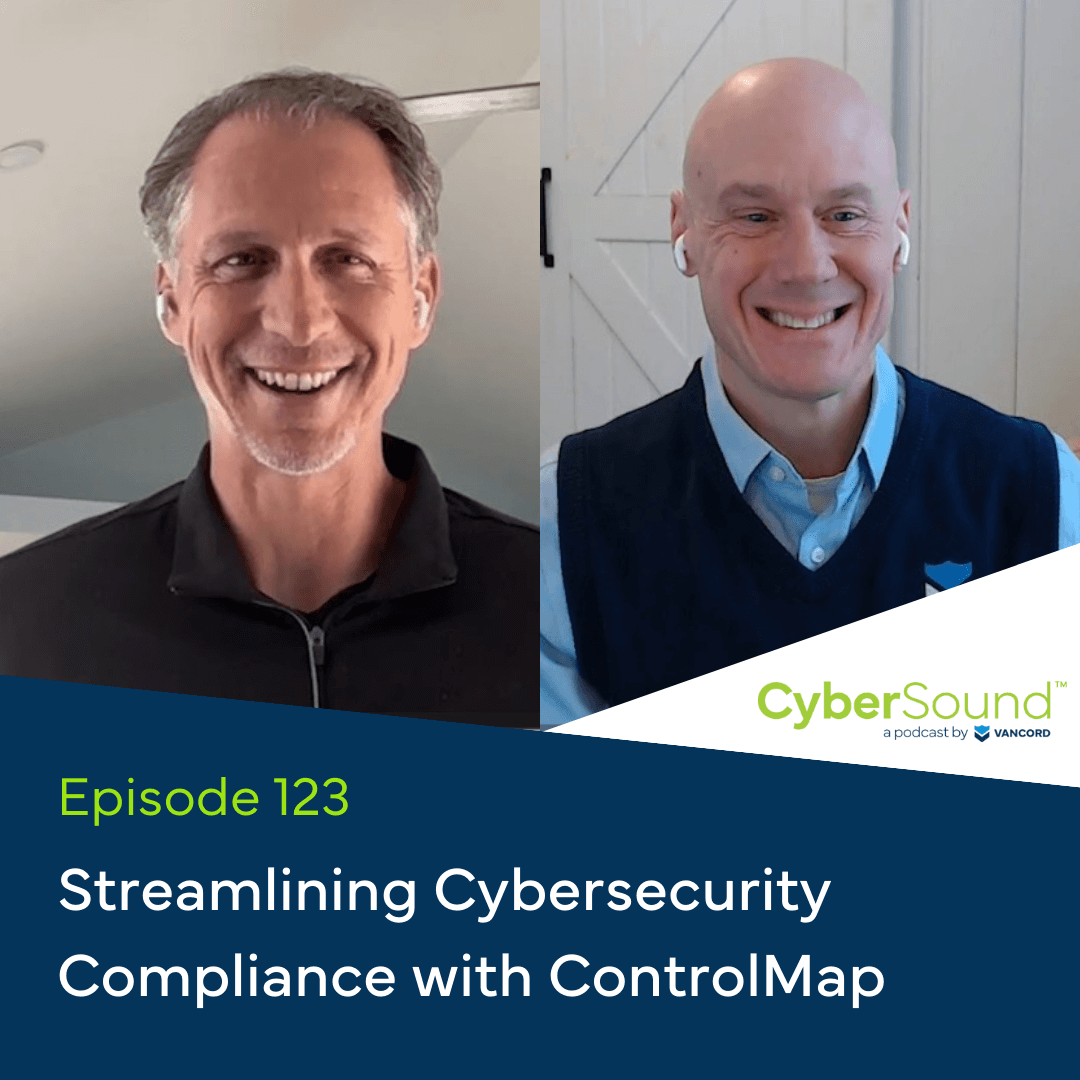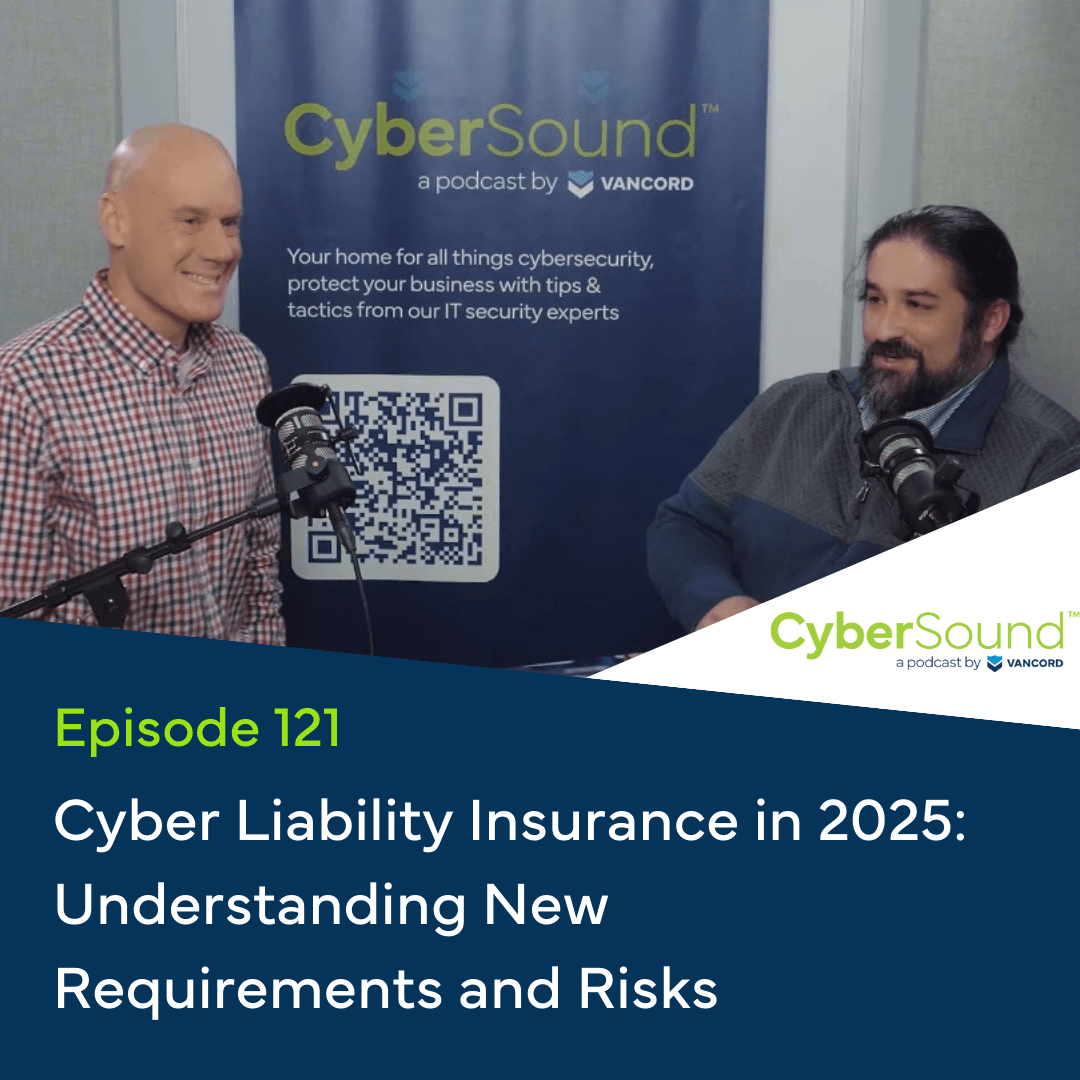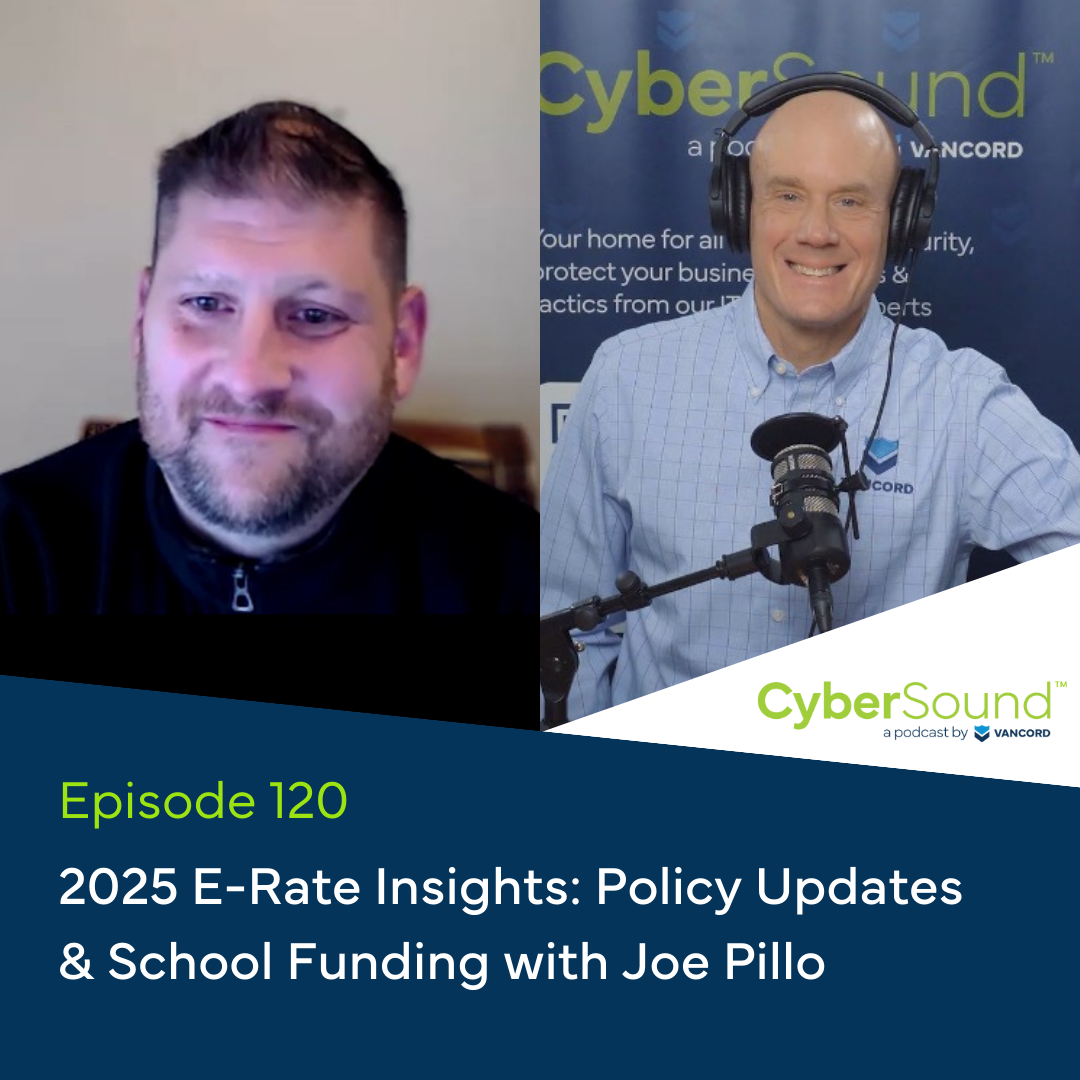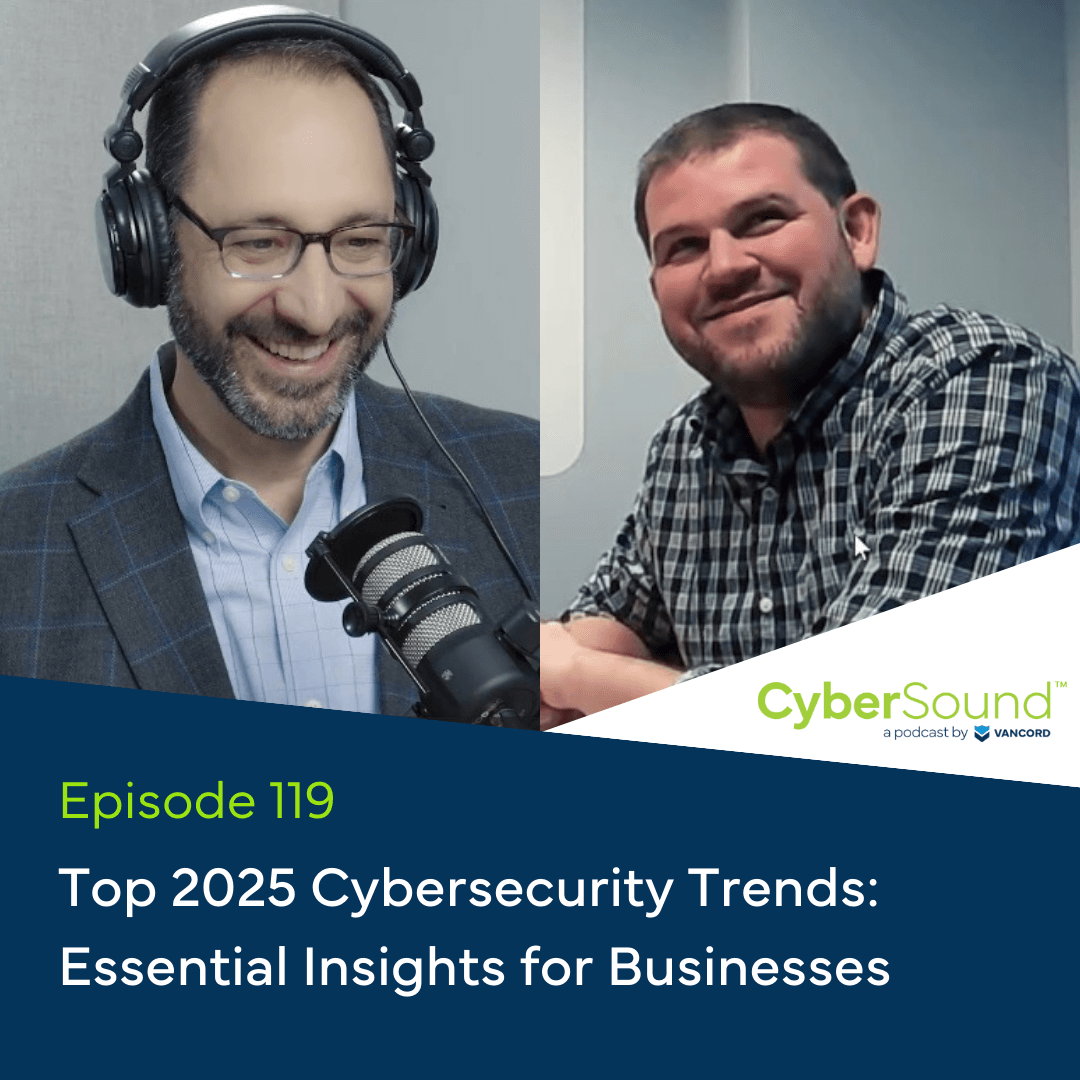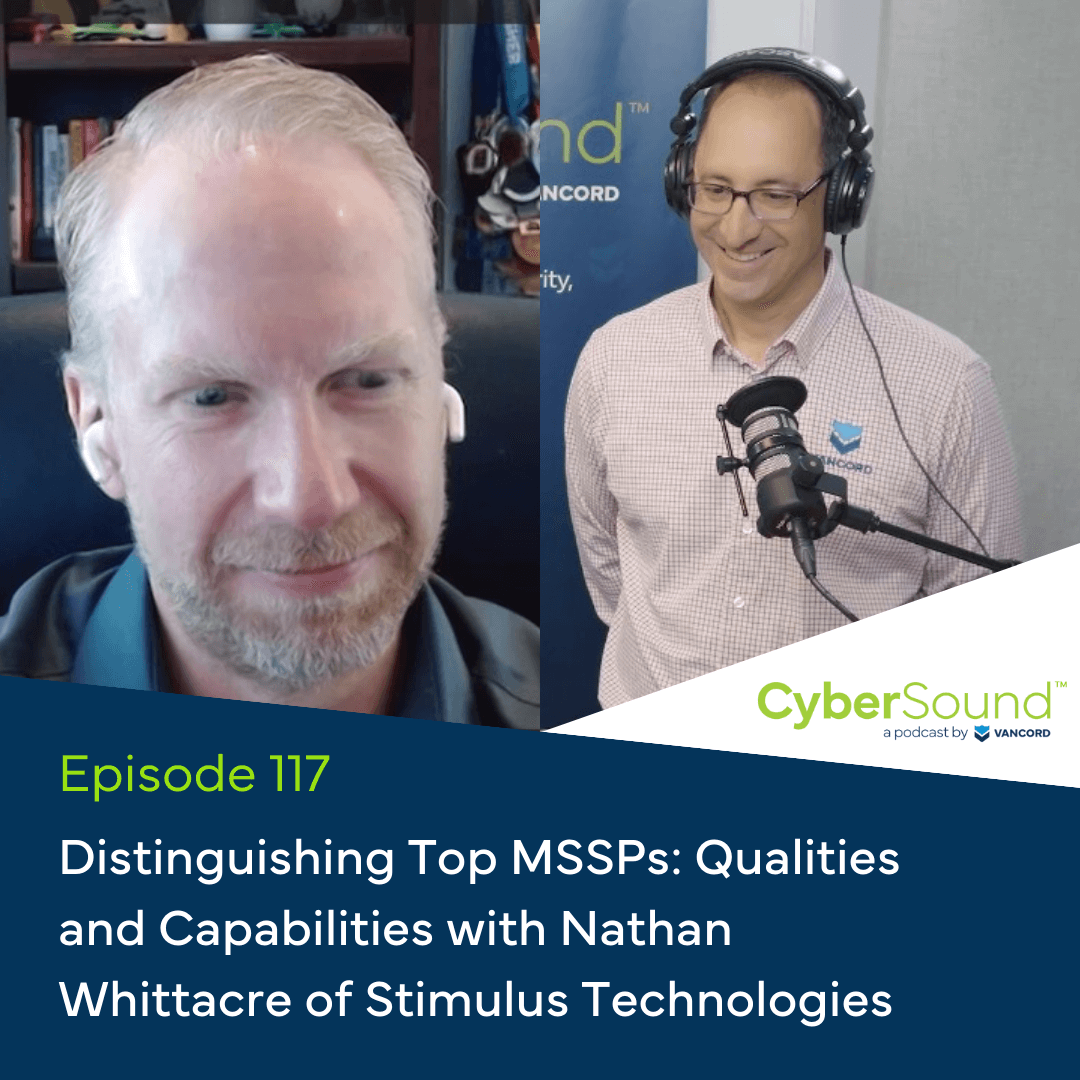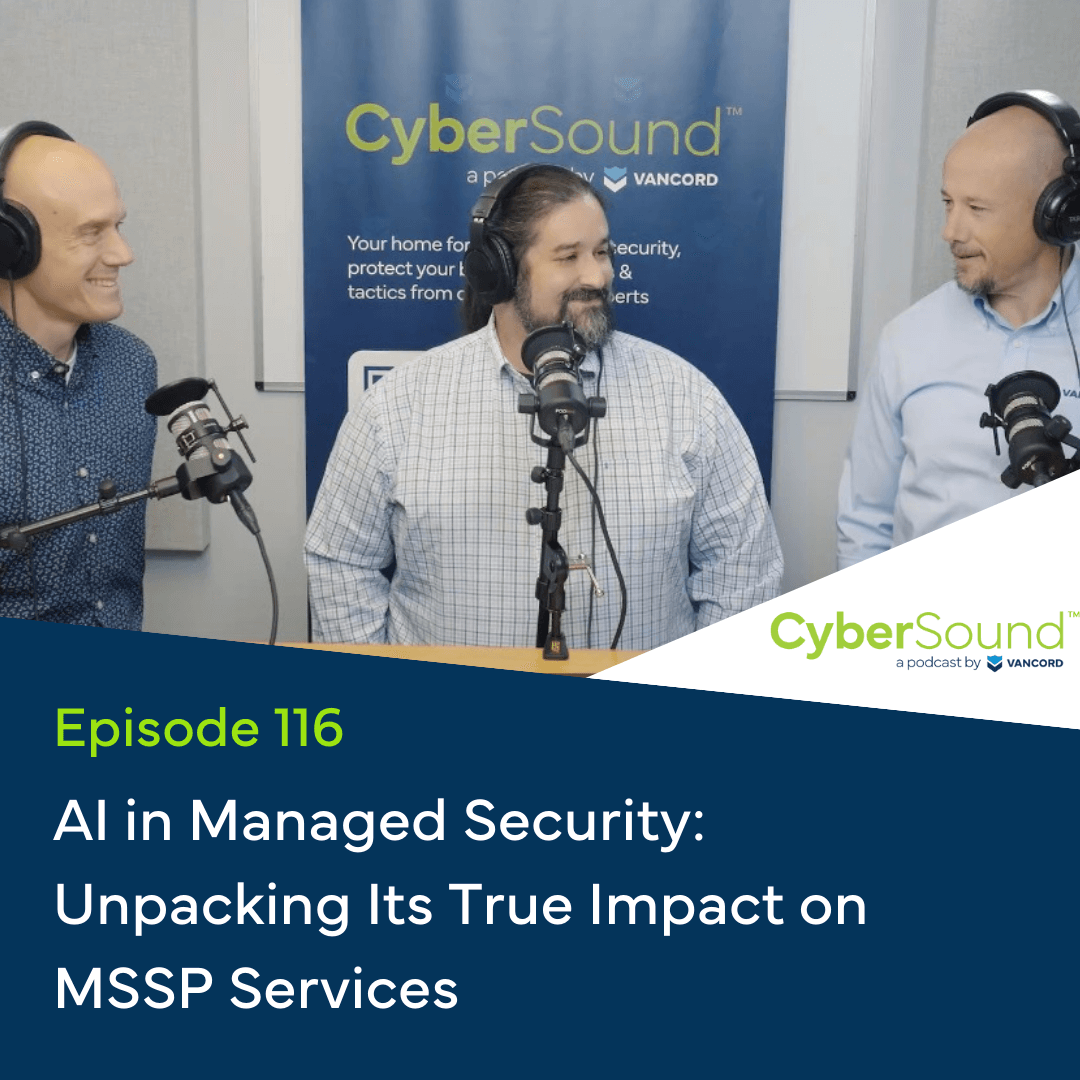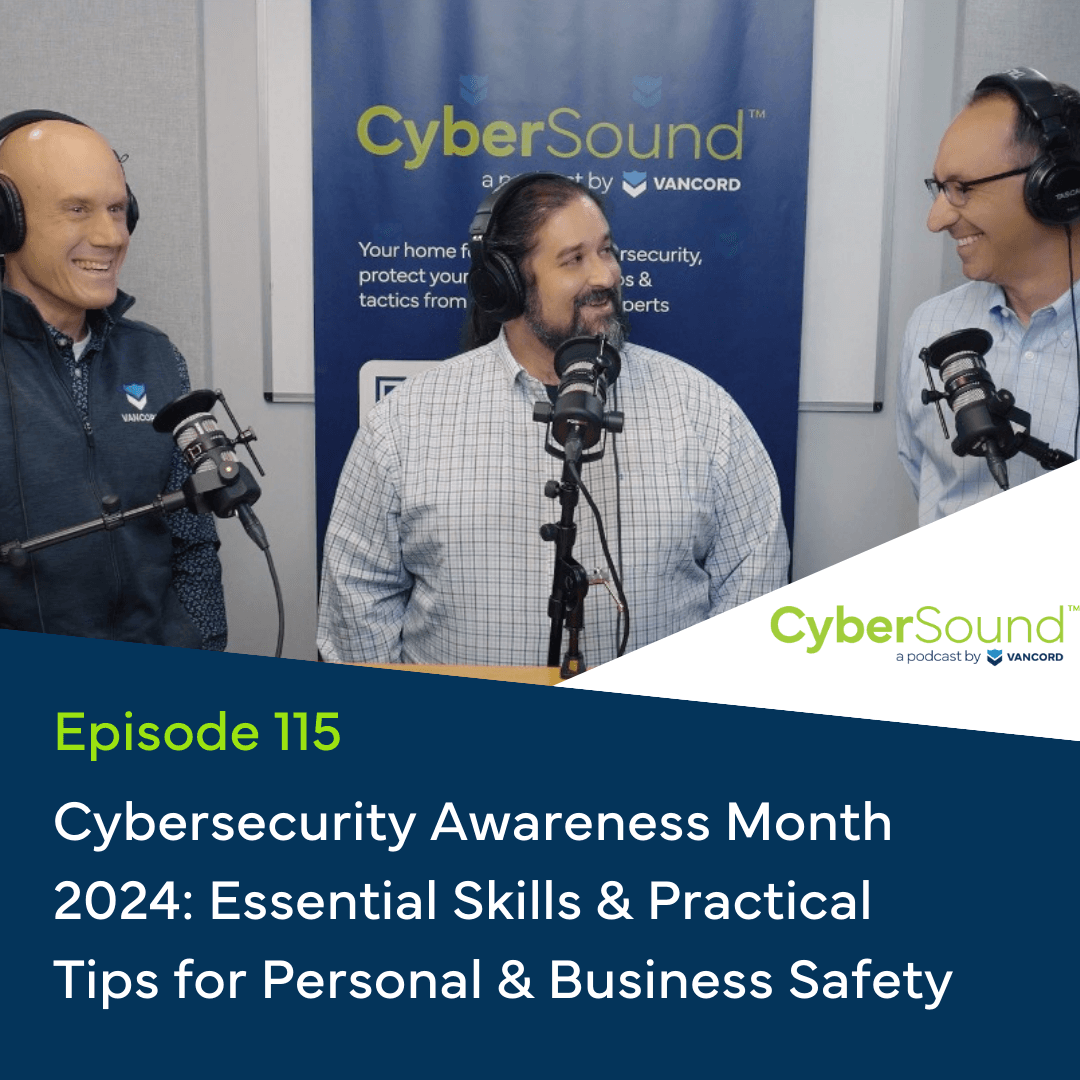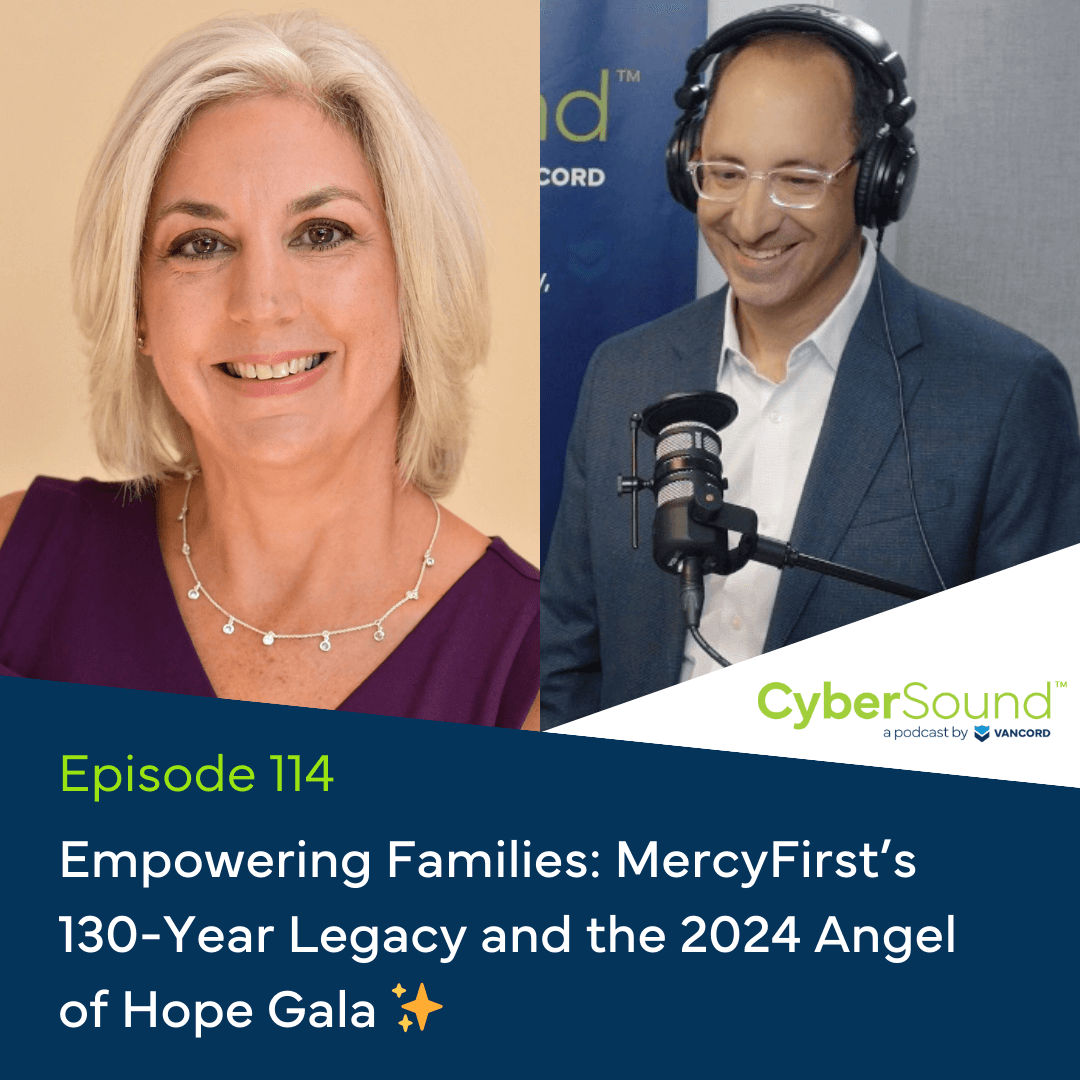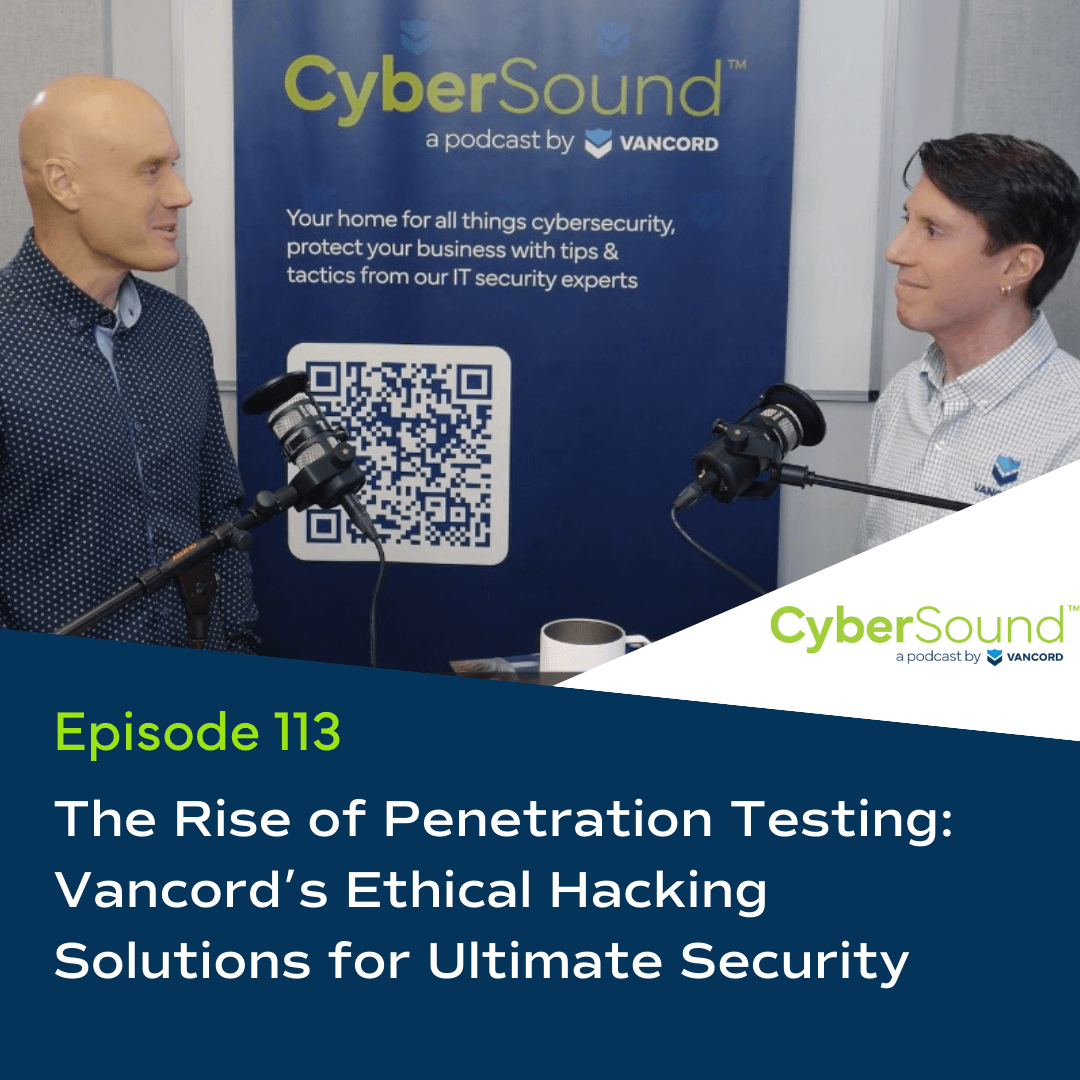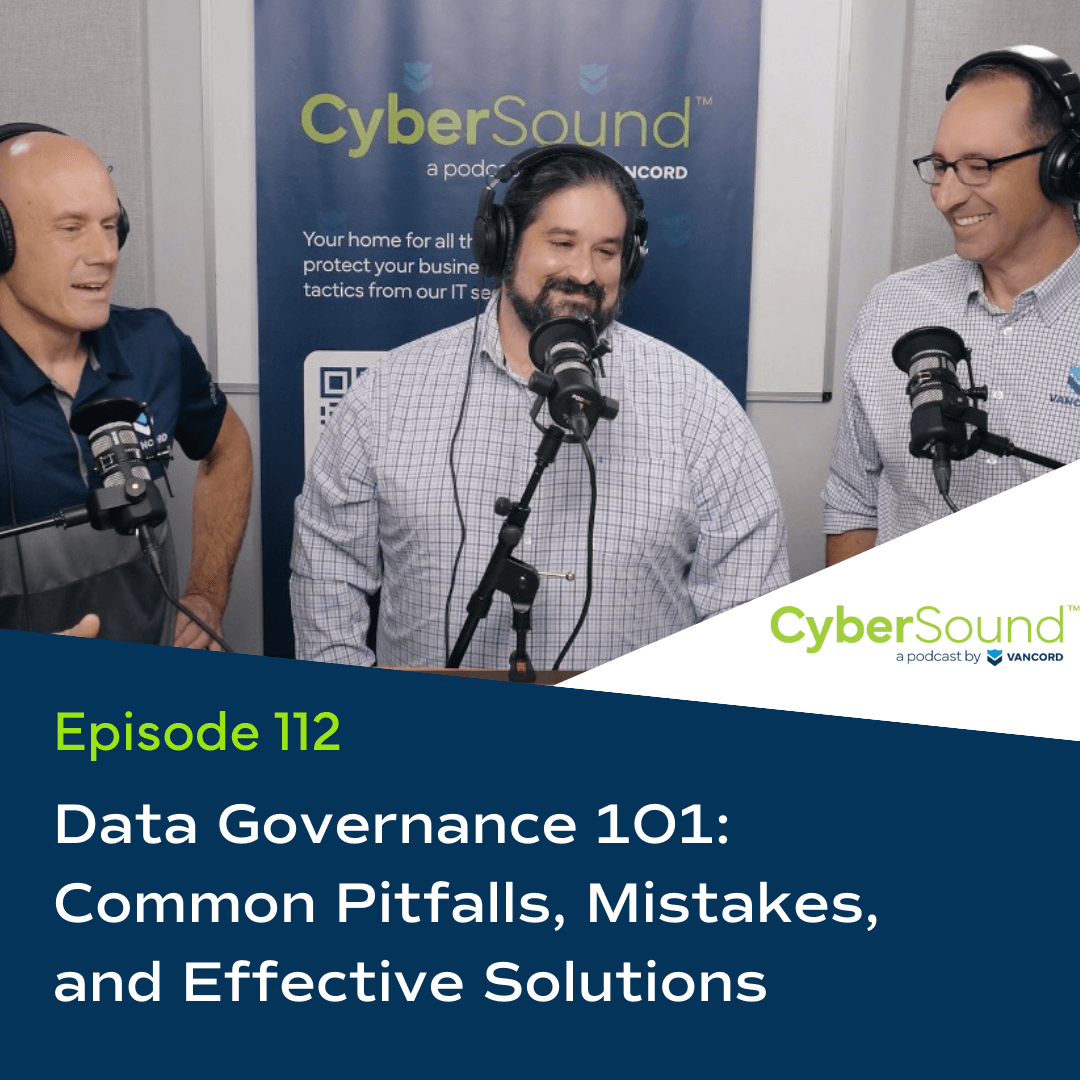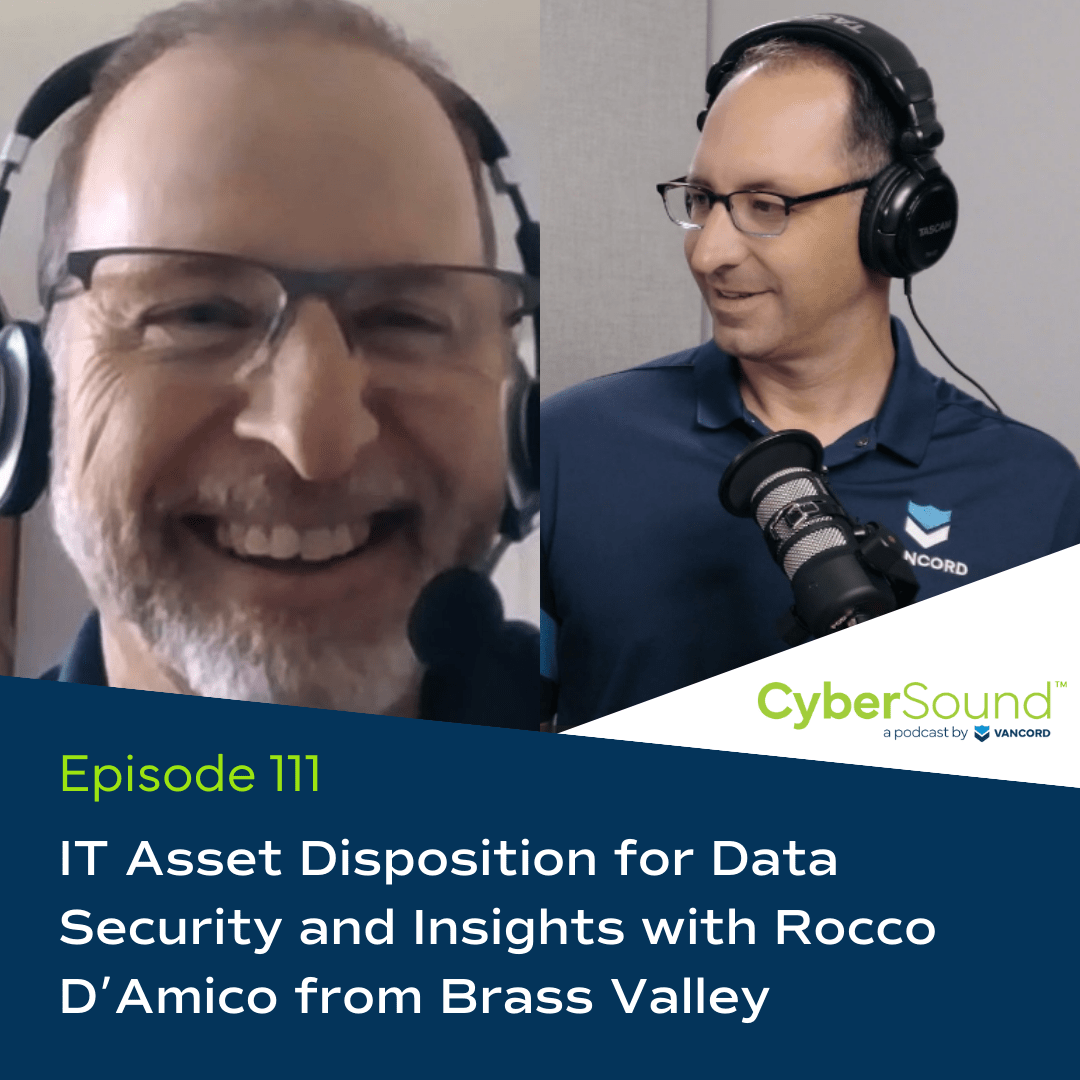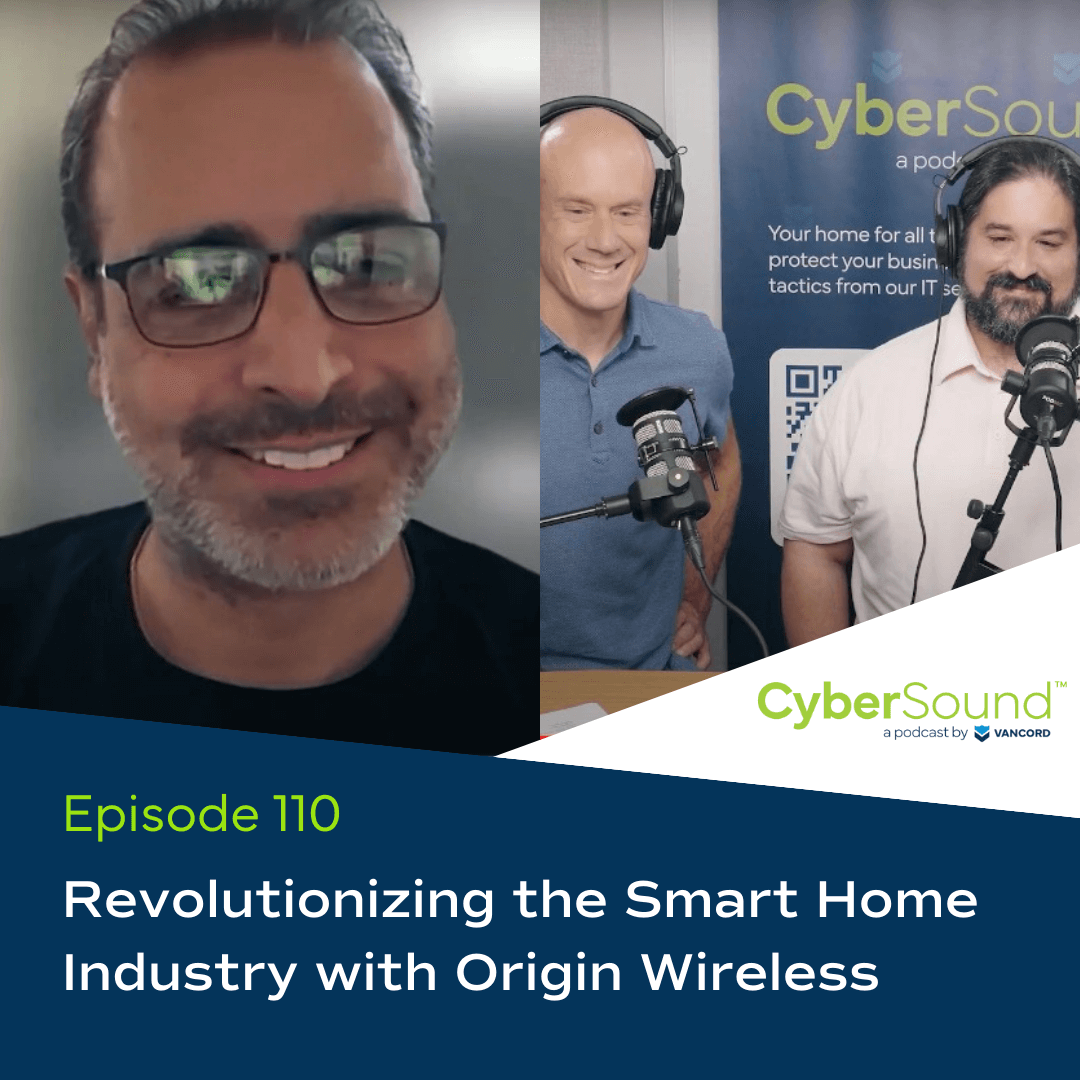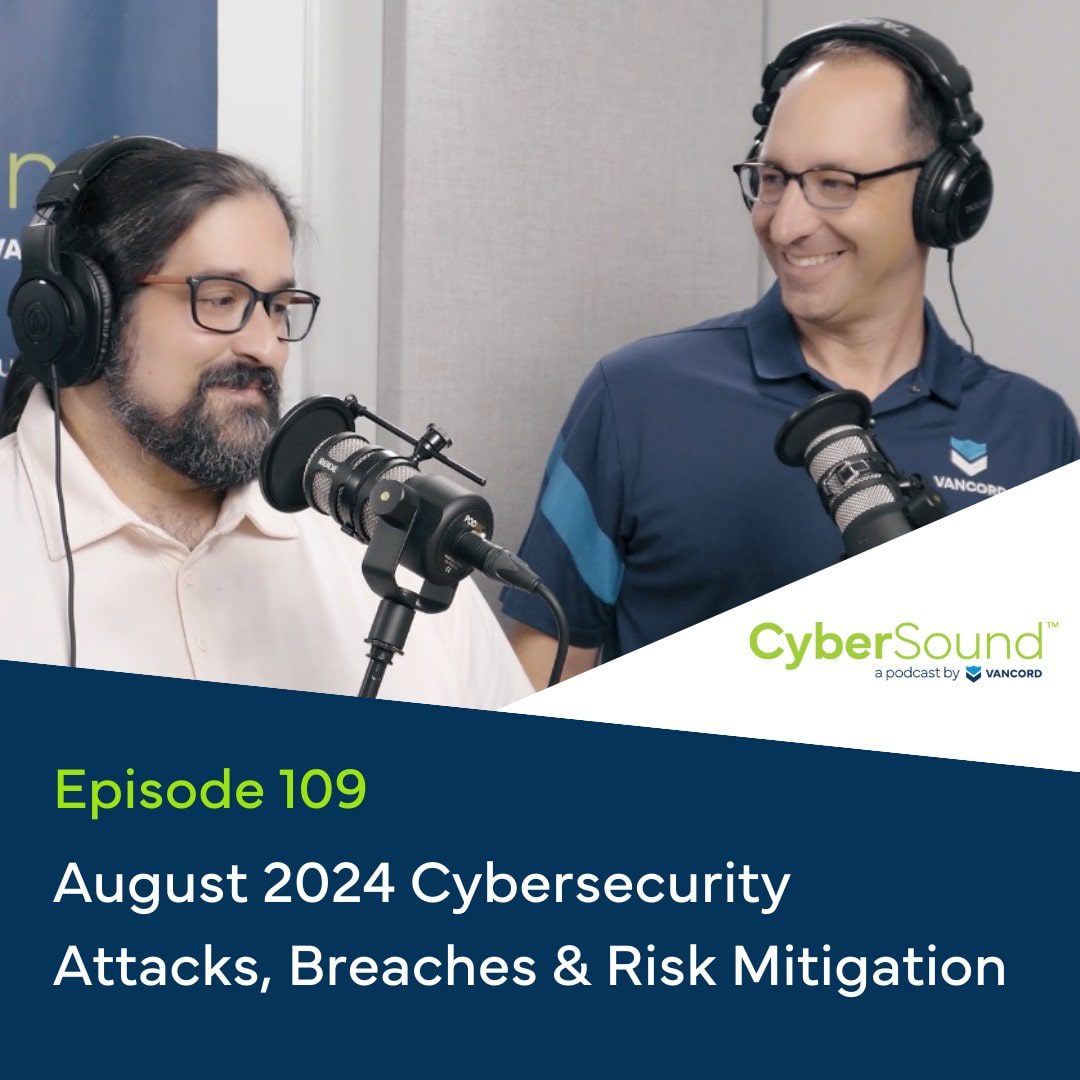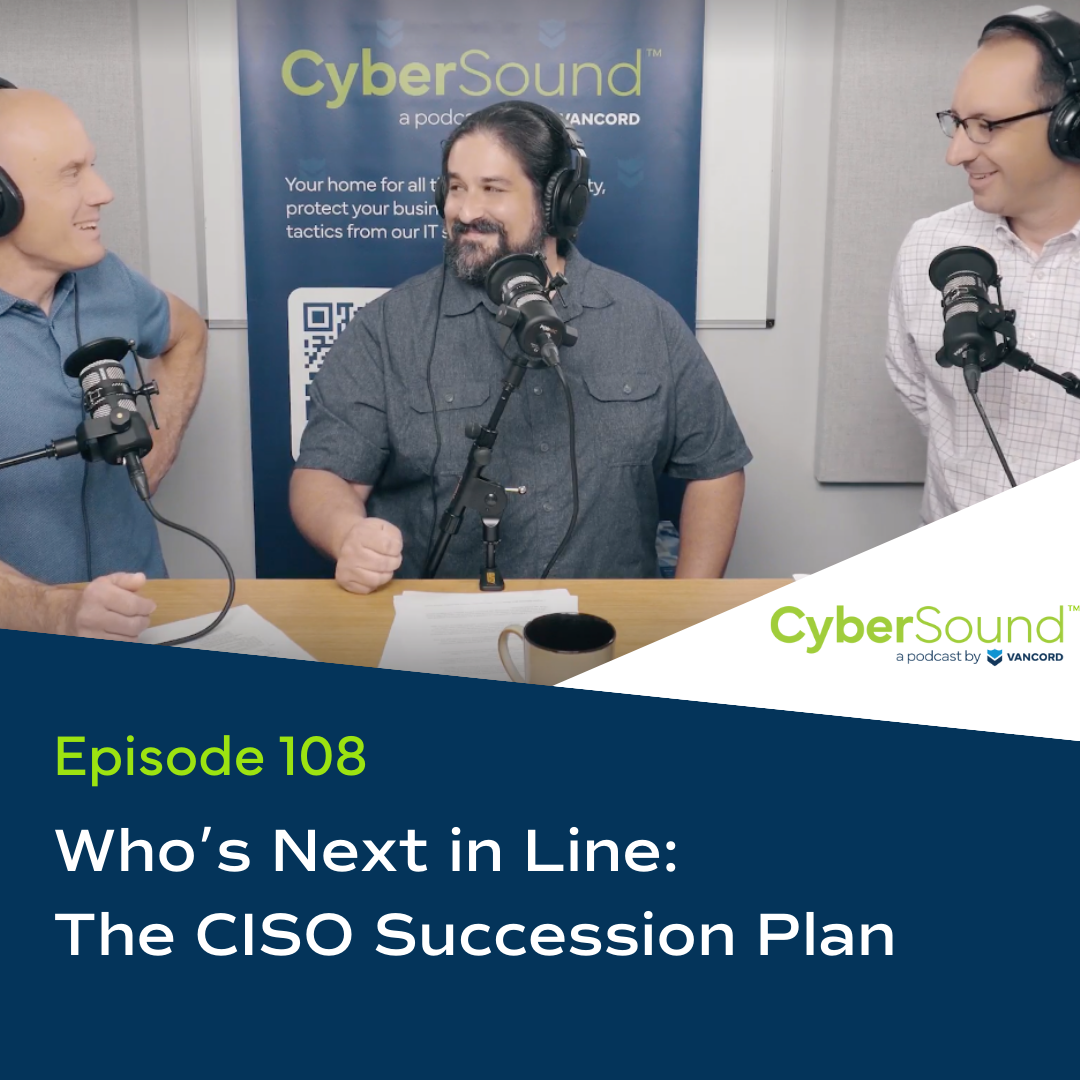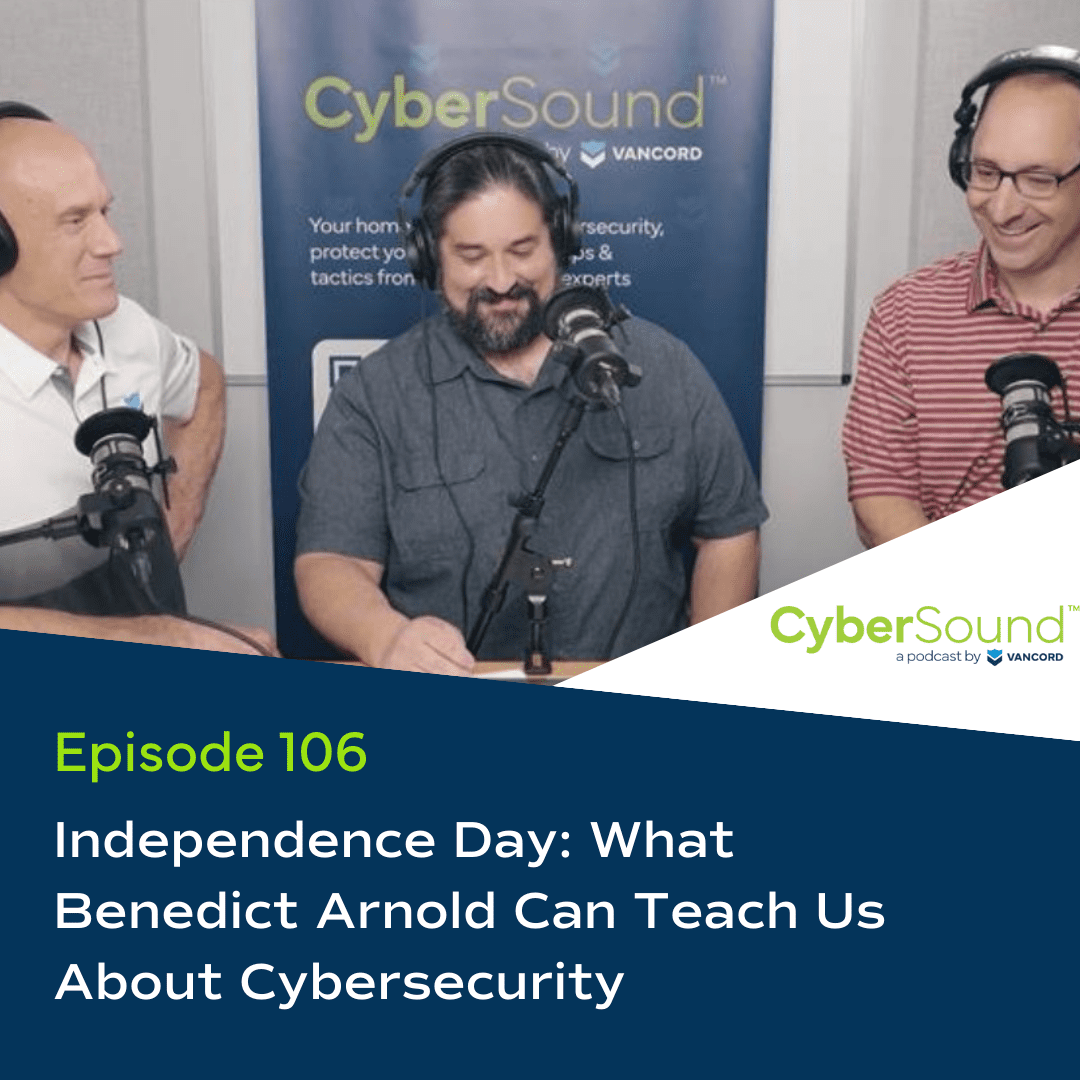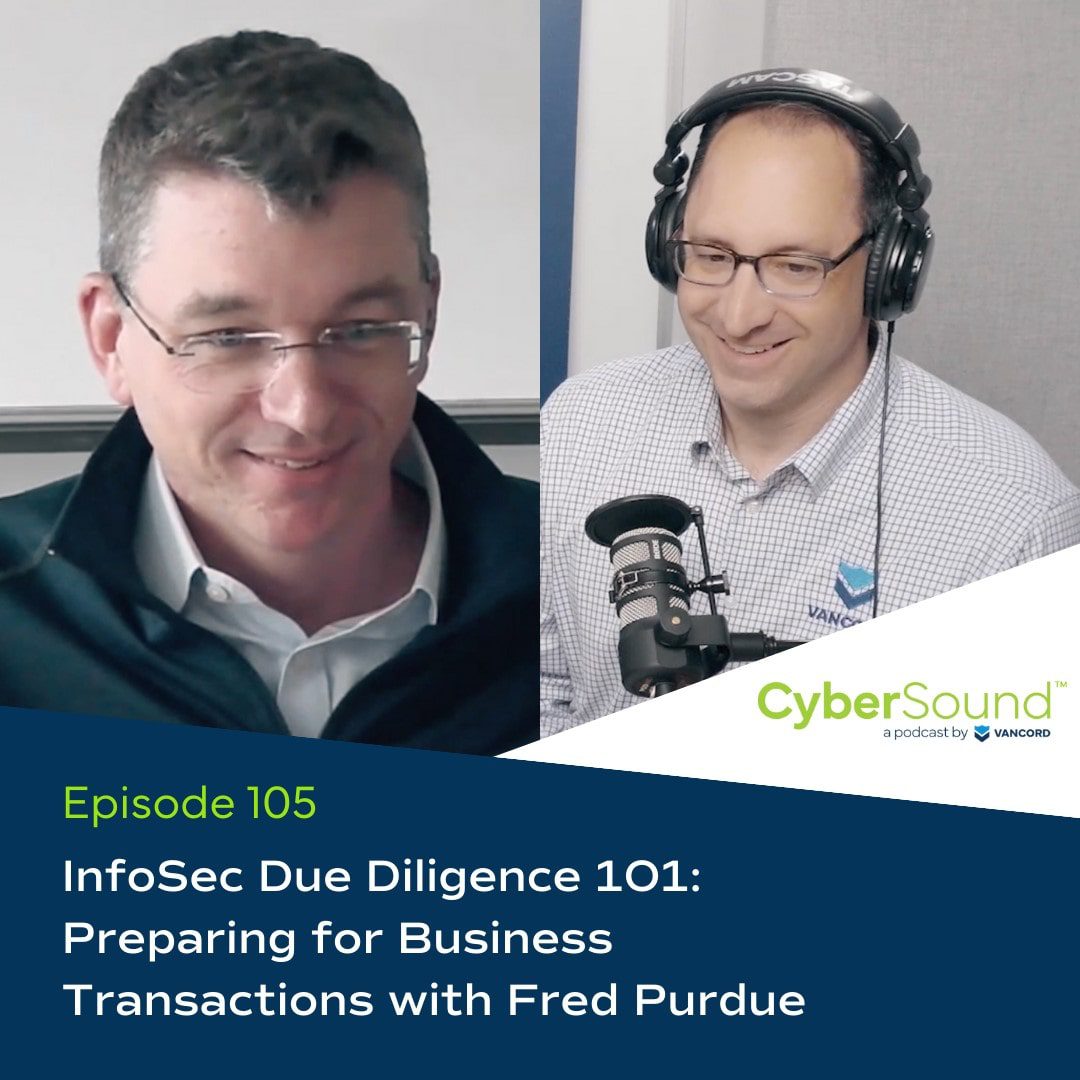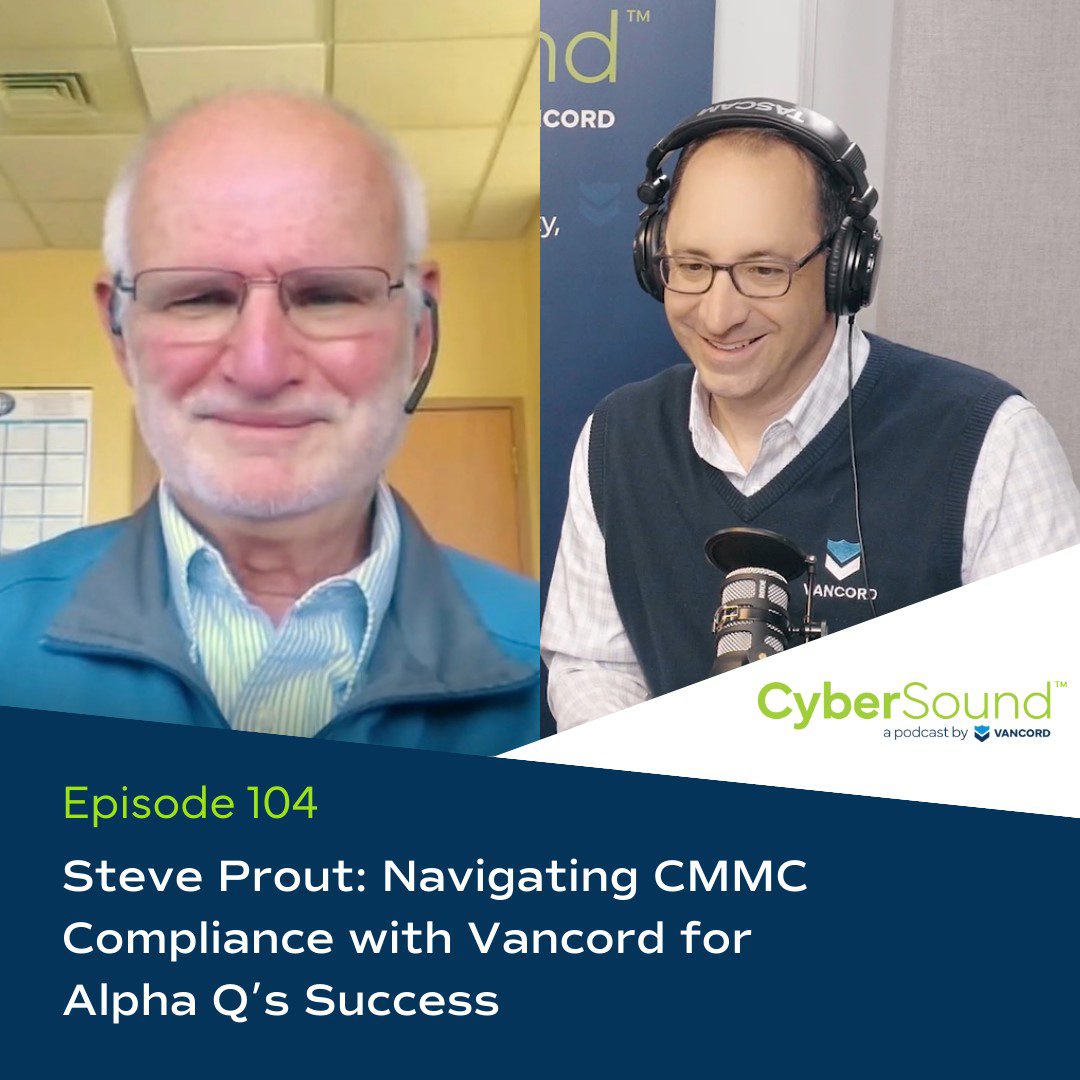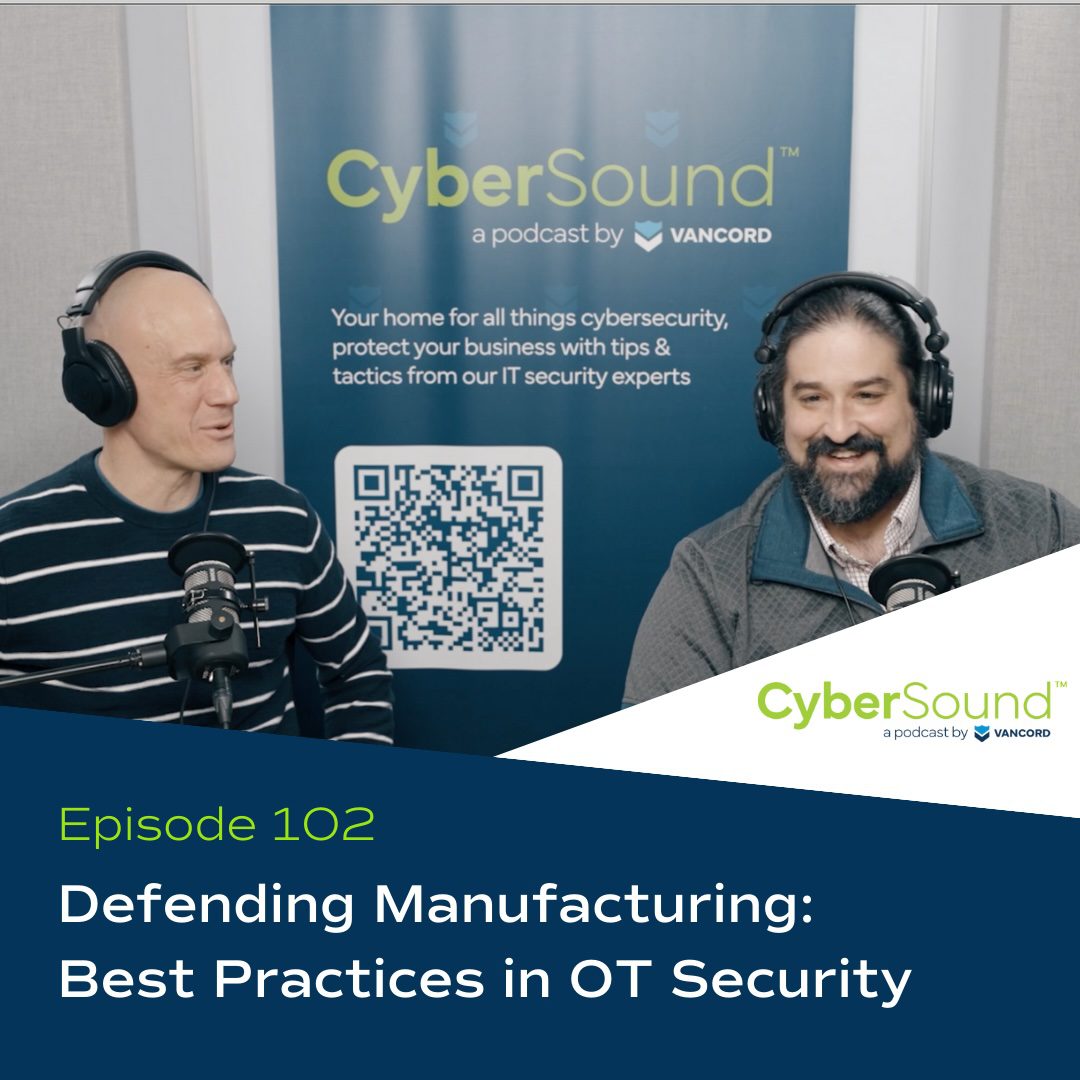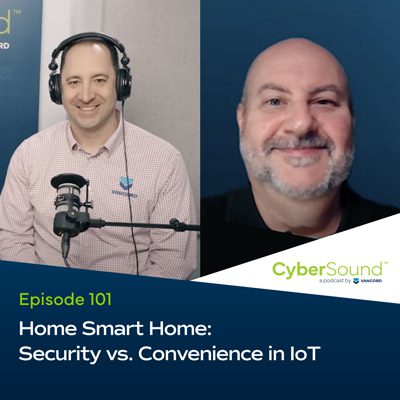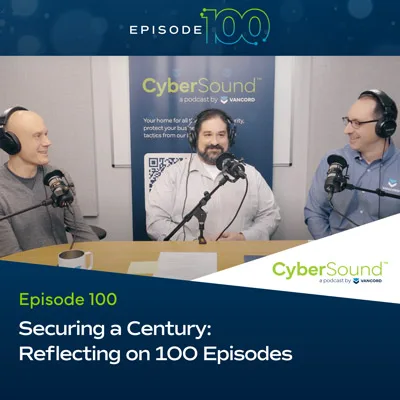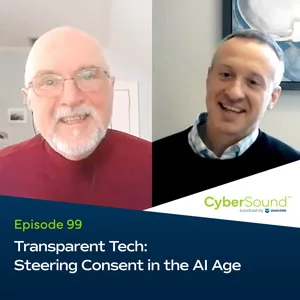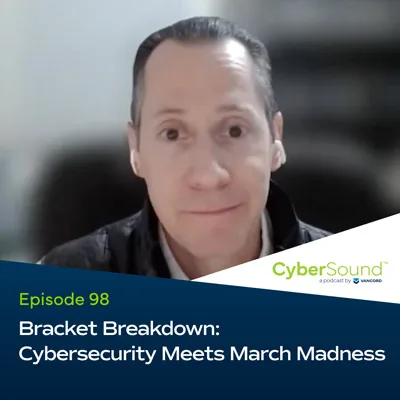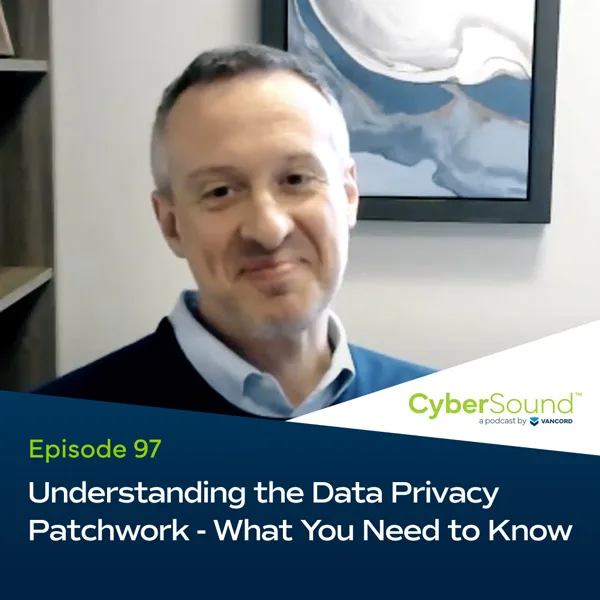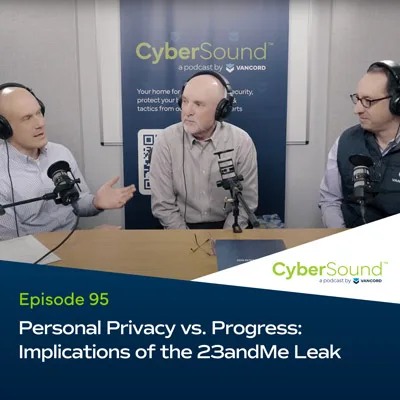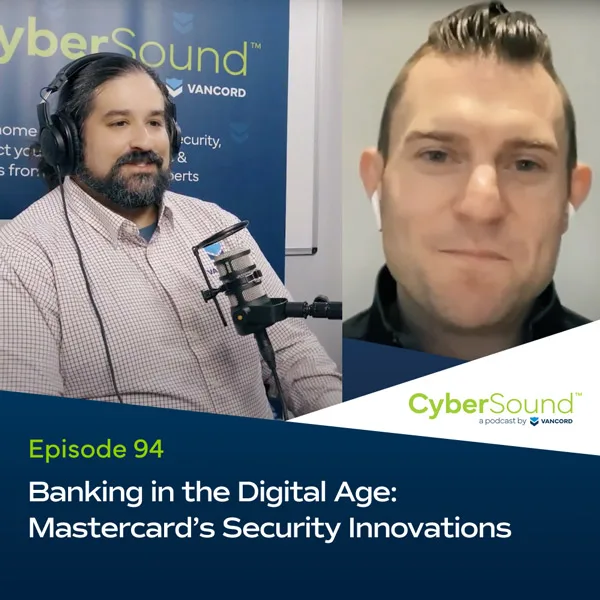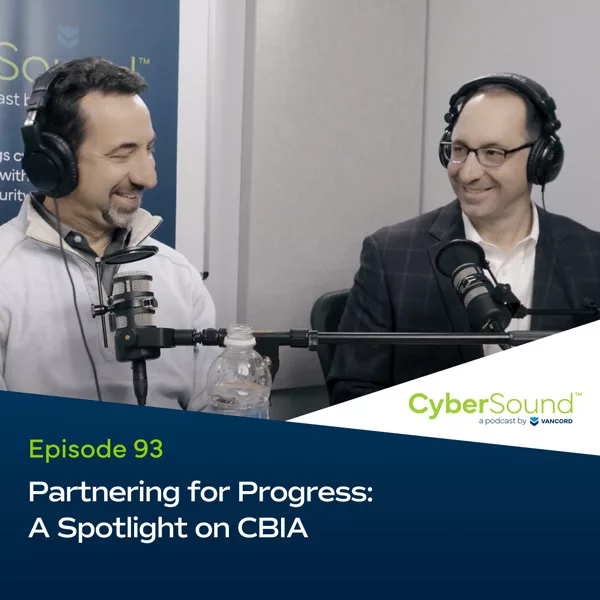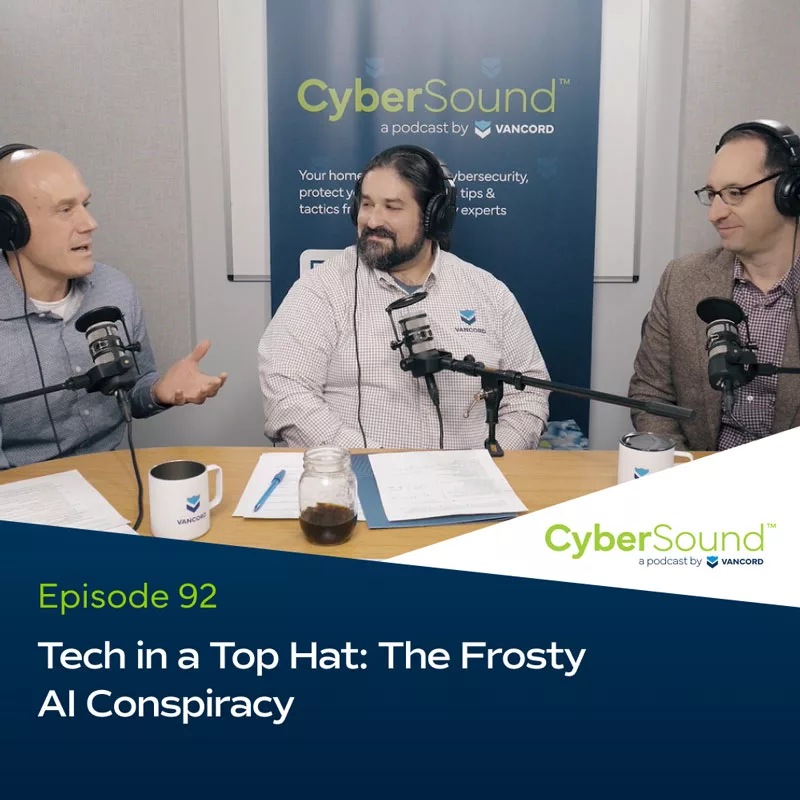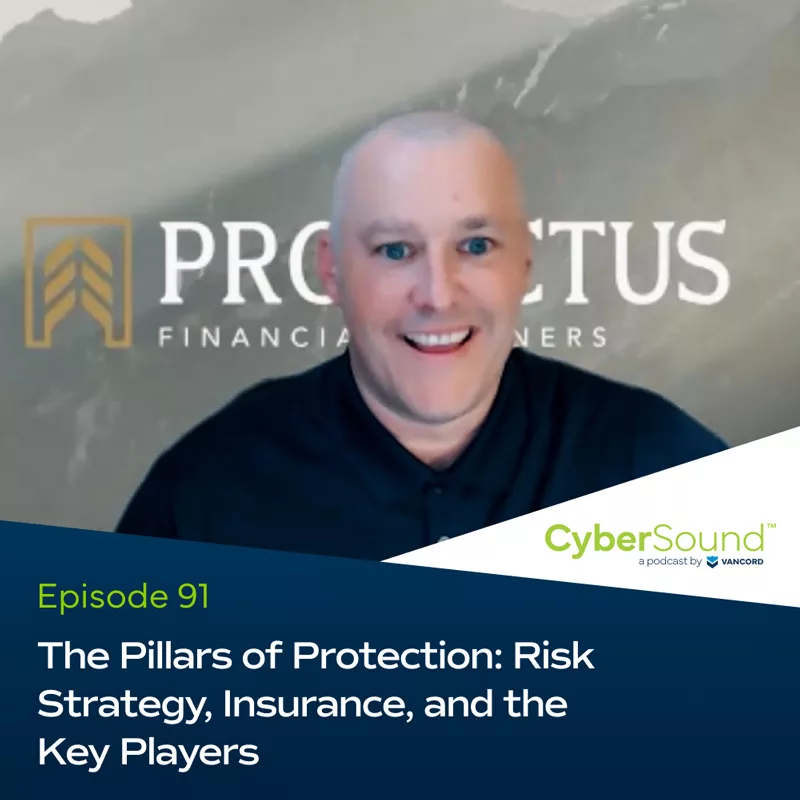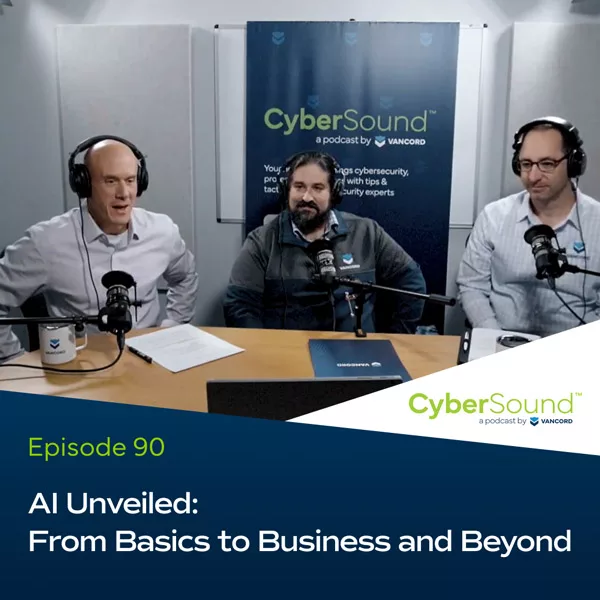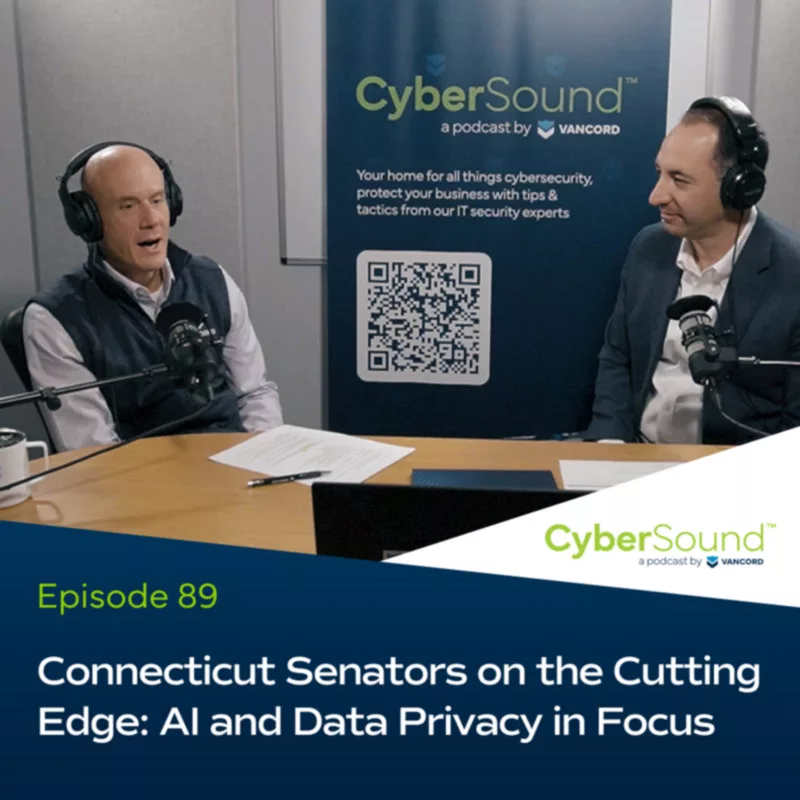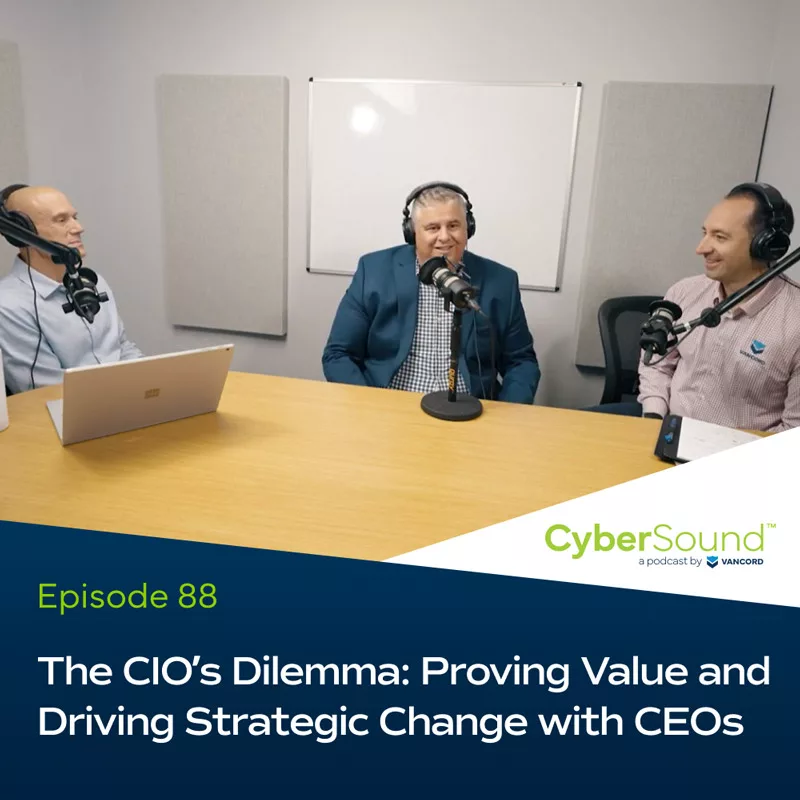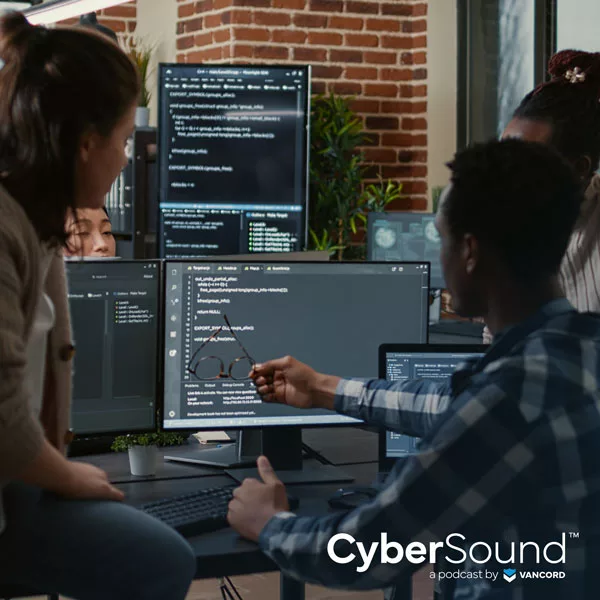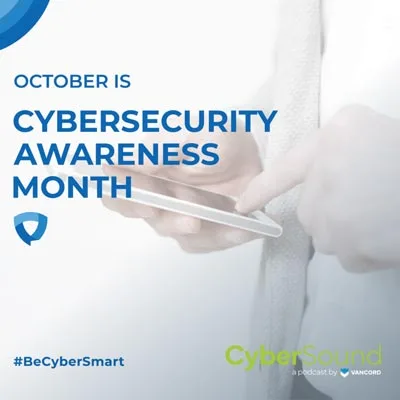Episode 135
Listen to this episode on
Episode Transcript
Speaker 1 00:02
Jason, this is CyberSound, your simplified and fundamentals-focused source for all things cybersecurity.
Jason Pufahl 00:11
Welcome to CyberSound. I’m your host, Jason Pufahl, joined today by Dan Kaupp and Lou Ardolino from Vancord. And we’ve got Anthony Mini, the President and Chief Information Security Officer, Pearl Technologies and the author of a recently published book called “How To Hack Your Health: An Algorithm to Better Energy”. Anthony, thanks for joining today.
Anthony Mini 00:35
Hey. Thanks for having me.
Jason Pufahl 00:37
So Anthony, you are President, CEO of Pearl Technologies, also an author of a book, and that was really what ki…
Speaker 1 00:02
Jason, this is CyberSound, your simplified and fundamentals-focused source for all things cybersecurity.
Jason Pufahl 00:11
Welcome to CyberSound. I’m your host, Jason Pufahl, joined today by Dan Kaupp and Lou Ardolino from Vancord. And we’ve got Anthony Mini, the President and Chief Information Security Officer, Pearl Technologies and the author of a recently published book called “How To Hack Your Health: An Algorithm to Better Energy”. Anthony, thanks for joining today.
Anthony Mini 00:35
Hey. Thanks for having me.
Jason Pufahl 00:37
So Anthony, you are President, CEO of Pearl Technologies, also an author of a book, and that was really what kind of got our conversation here started, right? So in April, he published “How to Hack Your Health: An Algorithm to Better Energy”. Kind of tried to convene a group of people here who I think prioritize health and wellness in their daily lives while managing your families and work, and you’ll sort of all the things that life throws at you. So I really wanted to spend some time today talking about the idea of, I’ll call it healthy living, right? It doesn’t necessarily have to be purely, certainly, purely exercise based, although I think it’s a focus for a bunch of this here. And you know, how do you, how do you build that into your day, and what the benefits are when you’re, you know, when a lot of us are probably working 10, 12, 14, hour days, and then you’re doing a ton of other stuff outside of work. So I think that’s, that’s our topic today. Do you want to take a minute and just maybe spend a little bit of time on your background and kind of what got you interested in this space and what led to the, you know, the writing of the book?
Anthony Mini 01:45
So, yeah, just a little background on me, and thanks for having me, is I was a computer nerd that ended up joining the National Guard to pay for my college. I wish it was a more patriotic reason, but that was why I joined and quickly went to boot camp in 2001 and we go to a technical school to learn how to service computers. And it was at Keesler Air Force Base. I got to that school on September 11, and so that pretty much changed what was my hobby at the time to become pretty much just my purpose, and I’ve been plugged into the Internet, sitting at a desk pretty much ever since, and that kind of what started the journey for me. And as we talked earlier, it was pretty easy to pass my PT test when I was in my early 20s, and as I started aging a little bit, I noticed it got a little more difficult, and I started to kind of break down why. And for the last 24 years, I started to build an algorithm, because everything’s an algorithm to us tech nerds. So I started to kind of map out what was impacting it. And that was kind of the premise of the book is just kind of my journey over the 24 years to learn how to pass a PT test, but also I learned a lot of benefits of just energy in general. And I’m not trying to tell anyone how to do it, other than just show them the variables that contribute to their current situation, because everybody’s different, and there’s a lot of people out there making claims, just do this 20 minute thing, just do this diet. And it really comes down to you testing it out and finding what works best for your situation. But we all sit in front of a computer a lot, and that’s a pretty big variable of being sedentary. So that’s kind of my journey. I’m still in the guard. I’m a Commander of Cyber Operations in the International Guard for the last 24 years, and I was going to retire, but I’m kind of Brett Farv’in it one more season at time. So the, you know,
Jason Pufahl 03:48
I had a friend of mine who used to always say, there’s no substitute for youth, and I think, you know, that’s that’s always held true for me. So I think you’re right. As you get older, you have to work a little harder, you’ll probably change some things. But you know what’s easy at 20 isn’t as easy at 50 anymore? Yeah, yeah. So, I mean, I’ll, I think we all talked about maybe sharing our background a little bit. I my, my watershed moment for exercise. I’ve always, I’ve always exercised. You know, I’m not, I’m kind of not a I’m not a big guy. Generally, you know run and biked and whatnot. But back in 97 I broke my wrist and spent close to eight months in a cast, and it just it slowed me down a whole bunch. And a friend of mine and I went to Key West. We got pictures back after, you know, sitting at the beach, and we both looked and said, we are not, we’re not looking the way we want to. And honestly, since then, like I live, we literally, we went out, we had a we had an apartment. We bought a cheap, kind of home bench press gym, started just generally lifting, and kind of never looked back. I, you know, I just realized, and for me, it was. Truly was, you know, 15 extra pounds. But that 15 pounds, you know, I had people saying, like, hey, you look older. Hey, you look different. You know, things that I just wasn’t used to hearing that, that whatever I was, 25 or six years old. So that was that I I really haven’t missed more than a couple of days, probably since then, because I realized, and generally it taught me to as I started doing it, it just felt better, like I’m pretty kind of type A, I’m probably a little high strung I kind of need to exercise, and when I exercise, you know, I’m better with my family. I’m better with my friends, you know, certainly better at work. So it’s as much a mental benefit as it is a physical benefit for me.
Dan Kaupp 05:40
Yeah, just thinking through, you know, similar to Anthony, I have the military background, but just thinking through, like, you know, as I get older, 47 now, right? And I’d love to hear Lou’s opinions on staying, staying a meathead like he has, in spite of his age, right? But age is that great equalizer, right? So, or just listening to an old podcast, Goggins on Joe Rogan, right? I don’t know if you guys have heard that, but it’s a pretty interesting listen. And yeah, it turns out I’m the same age as David Goggins. Within some months, he just ran a 200 mile race, 66 hours, right? So that’s like, the other end of the spectrum from like, kind of where I’m at, you know, I just try to, you know, similar to what Jason said, I, I’m better, you know, I’m better with my family. I’m better with my job. I’m better with all the things, when I stay when I stay busy, when I stay doing all the right things. And I, you know, I’m, I’m a techie too, right? So I’m tracking, like all these different things and all these metrics. And I have spreadsheet that I’ve been running for several years that tracks like, you know, consumption, like all these it’s ridiculous, really, because I don’t show it to anybody, and I just use it to keep myself honest. And, you know, it’s kind of asinine, because I do all the same things every day, and I track it in a spreadsheet, and I know I’m going to do those things, and it, you know, and it just is. But I got to tell you, when I get to the PT test for the military and I max it out, brush all these, you know, 20 something year old kids, it’s pretty great. So I guess that’s why I keep doing it. I don’t know motivation is a weird thing, because I just, you know, it’s not, it’s probably not motivation anymore. It’s just discipline. It just keeps showing up and doing it because that’s just what you do.
Jason Pufahl 07:55
It becomes habit, right? I mean, habits a strong, a strong thing.
Dan Kaupp 08:00
Yeah, I feel bad, like I go two days without working out. I’m just like, man, this is not this is not working. That’s not good. Can’t do it.
Jason Pufahl 08:10
I’ve never been the fastest, necessarily, you know, reasonably competent running and biking, but I always sort of thought like, all right, when I’m 80, you know, I’m gonna win things because I’m gonna be that last man standing. And now that’s not true anymore. You know, people are exercising way, way older I feel like when they used to. I don’t know if anybody saw the 80 year old who just finished the Bad Water 135 which is 135 mile run through Death Valley. He’s 80 years old, and you realize, now there are some people doing some just unbelievable feats at ages you never saw you didn’t see that 20 plus years ago. Lou?
Lou Ardolino 08:52
Um, yeah. Thanks, Jason. Dan, I don’t consider myself a meathead, just FYI. I go to the gym. I exercise to keep, you know, to keep myself healthy and moving. I’m not looking to squat or bench any, any records anymore, but,
Dan Kaupp 09:10
Of all the people, of all the four of us, played, played at Ithaca, right? Football, yeah, yeah. More of a meathead than than any of us. Yes, played at a high level.
Lou Ardolino 09:29
Yeah, I played. I played so I, you know, I I’ve played sports my entire life, and I played football at Ithaca College, my senior year, my freshman year and senior year, we won the NCAA Division Three National Football Championship, small school, big fish, little pond, right? But, little fish, big pond, you know, big fish, little so and also my degree at Ithaca was Exercise Physiology. So immediately after I graduated, I worked in the fitness industry. And, you know, I was 280 pounds when I played, you know, played football in college, and I quickly realized I had to shed that weight to stay healthy. And I did do that. And I was, I worked in the fitness industry, I I still, I still run. I sat. I have a side hobby where I run. I run a fitness, my own little fitness company, where, where we where we run. We run weekend boot camps for local, local people, and we run it, you know, we I have, I have a tire in the back of my truck, a sled in the back of my truck. I can, I can stand up a fitness class in five minutes and run it in the parking lot and any at any point at any time. So fitness is all part of, a part of my life. I met my wife while working in the fitness industry, so we’ve been very focused on staying healthy. And, you know, we drove that down to our kids as well. Our children are all play sports. They all play sports in college. So it’s been, it’s been, certainly been, been part of, part of our lives.
Jason Pufahl 11:15
So Anthony, I’m going to start, I’m not sure if it’s softball or maybe a difficult question, but is there any, yeah, everybody, every, every influencer wants to unlock or provide the secrets or do something like that. And I’m not saying you’re an influencer, but you did write a book. Is there any outcome that you feel you really came to that if you had to give somebody some quick advice, you would do?
Anthony Mini 11:41
Yeah, and that’s kind of the premise of the book, is that, you know, it’s a massive industry. When you get into the healthcare and and fitness, that there’s a lot of claims people trying to make money, unfortunately, right? So do this 30 minute workout and you’re gonna have these abs and do this diet, don’t eat carbs. I mean, it’s one claim after another, and it’s interesting for us because we’ve been around the internet and seen the evolution of the Internet. But if you were to Google right now, let’s say lemons cause cancer, you might find something from a reputable source, let’s say Harvard health, that says too much acidity and whatever might it might cause cancer. You could then Google lemons cure cancer. And might find something from Mayo Clinic that says just the right amount of lemon in your water every day will help you, keep you balanced. So there’s a lot of very contradicting data sources out there that are reputable, and people who are reputable, and I’m not taking anything away from them, I’m just a natural skeptic. Just that’s how my brain works. I don’t know if this from being in IT so long that I don’t believe anything works, but I would end up kind of looking into things and finding out, okay, how does that work for me? And so to answer your question without answering your question is that my really epiphany was the silver bullet is just finding out what works for you. You know, what is your occupation? Are you sitting a lot? Because if I was a roofer, I might be able to eat a couple more calories a day, but sitting for 14 hours that’s that’s not a luxury I’m gonna have. I also maybe get to keep my back a little longer. But in my occupation, the one thing that really stuck out to me in this journey was the impact of stress. And I liked Daniel, your Excel sheet, thanks for sharing that, because that is the tight nerdery of the things that techs do is, what are the variables? What’s it’s like you’re an operating system, what inputs are going in and what’s the output? So for me, I like to dump just a lot of stress. I don’t know if it’s a dopamine hit, I get excited responding to a ransomware attack. It might be sick, but I like that. And I started studying stress. And what’s amazing about the time we’re living in is the transparency and accountability you have, just like that Excel sheet, where you can put all this tech on you, whether it’s your watch or breathing into something telling you if you’re burning carbs or fats, like it’s an amazing time to be alive. And I noticed that, not to get too deep into the weeds, but I was having some like, gut issues because of stress and my eating. And I really wouldn’t have known that without the tech to look into kind of what was happening, and I’m bad with words, but microchondria, like wasn’t, wasn’t locked in. And so I started focusing on stress, and I noticed there’s two types. There’s distress and you stress, and it’s really how you respond and embrace the stress that hits you. Whether it sends a dopamine, adrenaline hit or cortisol and distress, and you could look like the healthiest person. You could be fit as Jason, run 15 miles, bike, but have so much distress in your body that your your internals look like the lungs of a smoker. So you know, fitness can be kind of misleading, until you find out what’s kind of going on on the inside. And for me, that was the biggest aha moment. Was just figuring out, all right, how do I manage this stress? And I started doing a whole bunch of different things. I take a nap at lunch, everybody makes fun of me that come out from my nap, and they’re like, you want your peanut butter and jelly sandwich now? Sandwich? Now, I should have got my juice box, but I started doing these things to manage my stress. Had the biggest impact for me. But everybody’s different. That again, that’s the whole premise of the book is, kind of know what you’re working with, and then play around with it, find out what works for you, but don’t take anyone’s word for it too much. You know, everyone has their own journey, but there’s just a lot of claims out in the industry that might work for you might not.
Jason Pufahl 16:12
So I’m curious, do you do we all track what we do on a daily basis? I mean, I know that I do that might if it’s not in Strava, I feel like the exercise didn’t actually happen, yep. And clearly does, Anthony, I’m sure you do, Lou, I honestly don’t know if you do that.
Lou Ardolino 16:29
Me? Oh yeah. I track Yep. So, so some of the apps that I use, I mean, I have an Apple Watch, so I’m tracking my exercises via Apple Fitness, I use an app called Lose It to track my, to track my, my calories and you know, my food. One of the things we do here at Vancord is we have a company step challenge going on, and we use, we use an app called Step Up, which allows you to aggregate any, any fitness device in track, whether, whether you’re tracking on your phone, whether you’re tracking on a Fitbit, whether you’re tracking an Apple Watch, it’ll track your steps. And we have, we have step challenges that happen weekly and monthly. So that’s kind of that’s kind of fun, keeps everyone engaged. But yeah, that’s I do. I do track. I’m, I’m, I’m very methodical about tracking. I’m always, I’m always tracking my my workouts, in my my diet.
Jason Pufahl 17:34
So here’s a question, then, how much do you think tracking? Do you look at the data and try to improve because of the data, or does the act of tracking and not wanting to miss days, for example, is that more of a motivation, even looking back as a kid? I mean, I know, for me, I love to see streaks, and it’s really rare that I go back and look at previous exercises. Strava will tell me, you know, if I’m on a bike route, you know, what my speed for that route was, maybe a year ago. So I’m always curious to see if I’m roughly on pace. That’s about as sophisticated as I get, other than the act of tracking and looking at my stats, you know, December 31 and seeing how my year was.
Lou Ardolino 18:12
The act of tracking is it? Is it for me, like knowing that, you know, I, if I, if I forget to start my watch, when I, when I begin we exercise. I I’m all I’m all thrown off. But you know, when I go for a run, I’m, you know, I’m, I’m tracking my pace and my am I improving on, on the last run? But from, you know, from from a weights and measure standpoint, I’m not really looking at, you know, did I, did I complete that exercise faster is I do more reps. I’m just tracking my exercises.
Dan Kaupp 18:45
And I gotta tell you, I don’t know for me, at least, as you get older, it’s better to not compare, right? Because I was looking at my old times in map, my map, my run, right? I’m sure you guys have heard of that. But looking at times from like, 10 years ago or 15 years ago, like it’s, it is very it is, is so unmotivating. It’s like, why am I even doing this? Right? I’m like, I’m losing, like, minutes off, off my times. Yeah, so
Jason Pufahl 19:24
Move when you’re eighty. I mean, I think that’s the reason, largely, we’re all growing right? It your your quality of life later is hugely affected by your quality of life today.
Anthony Mini 19:35
And Jason, Jason, I never thought of it until you asked, but I I’ve never looked back, either. So I know a lot of us on different levels of spectrum. I call it OCO, so instead of obsessive compulsive disorder, I call it obsessive compulsive order. Just coined that you hear to hear but I use these types of accountabilities to keep me in line. But you’re right. I’ve never. Looked back, I was never like, don’t even analyze it, but you gotta do it, but you gotta get in. I that can bring up some challenges, though, because some people get too fixated, maybe their Apple Watch, tell them their heart rate’s up, and then that can be cyclical, and all sudden it’s getting in their head, and the heart rate goes up more. And so I think you got to kind of be careful, but yeah, it’s an amazing time to kind of have access to these feedback loops, right, which we love in technology. You got to have that, that KPI, and just an internal feedback.
Jason Pufahl 20:33
So I want to change a tiny bit here. This is a tough podcast for me. Usually, we try to keep it around 15 minutes. I love this topic, so we’re already over time, and I’m gonna ask another question. But when we were chatting at the beginning, I think Anthony, you mentioned the idea, sort of gym intimidation, and, you know, so you’re on right now on this call, there’s four people who exercise regularly. You were probably pretty comfortable exercising in groups and just doing things, but you know what, I hope, I would hope that somebody who hears this sort of says, you know, hey, I’d like to start, because it’s you. It’s better for my it’s better for my mental well being, it’s better for my physical well being, whatever. But it’s really challenging to go from a place of maybe not being fit to being fit, but then exercising with people. And I think for me, the social aspect of exercise is arguably as important as the physical aspect. And I love, I love exercising with people, but partly, I’m sure it’s good. I’m comfortable enough doing it. You mentioned gym intimidation. You know the idea of going to gym the first time and not knowing what to do, right? Not knowing what weights to pick up, not knowing how quick to set your treadmill, maybe whatever that might be, or even going for a light jog with somebody, where you think you know, maybe you can’t run that seven, eight minute mile that you think the group’s going to take and it discourages you. That’s a place where I feel like we really need to change the thinking around it and be generally more inclusive, and try to try to encourage people to get out. Then, you know that might mean making adjustment to your own exercise, but so important, I think the social piece of it. I’m curious your thoughts there.
Anthony Mini 22:17
Yeah, and there’s an industry, obviously, because you have Planet Fitness, right? I mean, it thrives just based on that premise. And I’ve had some friends tell me the same thing. When I’ve asked them to come to the gym, they’re kind of intimidated to go. And it doesn’t help. At our base, we have special operators that make us all look, you know, ridiculous. But for me, I was interested in just the energy benefits, and not so much having beach bod or gaining a ton of muscle. My drive to go to the gym was it was just to enhance my metabolism and really work on that mental stress. And I noticed through the years, as I’ve gone to the gym and see people in there, I could tell you, everybody is so excited to see others in there, if it everybody starts somewhere. And when you see someone that maybe isn’t in great shape in there, in all of our hearts, we’re like, hell, yeah. Like, yeah, go for it. For you, yeah. Like, there’s no one judging there. I mean, there’s 10% of the world’s assholes that’s that’s in the library, that’s in that’s everywhere, but in the gym, I think because we’ve put so much work into it, that when we see others show up, we’re so happy that if we could go high five you, and that wouldn’t be weird, I think we all would. We just we’re excited that you’re in there, and we want to support you. And it’s an amazing time again. I keep saying that, but there’s so many apps out there that show you how to have proper form. You know, one of my favorites is like muscle and motion, and I’ve seen it in my Instagram, and it just shows you how to have proper form, and that helped me not look like a knucklehead. But there’s and you could ask people, like, if you were to ask someone to spot you every time, 100% have not had a bad experience, to ask someone to help me or spot me. They’re always willing and excited to help you. So yeah, maybe we have, like, national nerd in the gym day just to break down this barrier, but we need to do something,
Jason Pufahl 24:20
Yeah, yeah. I mean, anything to encourage people to get out, because it’s hard to get started and it’s hard. I mean, I feel like my takeaway from this, in a way, is your routine is to shut your friend, and if you can, it doesn’t even matter. Carve out, you know, 15 minutes a day. I know you’re going back to when I was 20. I just had this attitude, like, you know, if it wasn’t an hour, then there’s no point in doing it. And there’s no doubt my philosophy around that has changed. If I, you know, if my day’s packed, but I get, you know, 20 minute run in it’s better than zero, man, and you did something, and, boy, it’s tough to make that mind, that mind shift. And I think a lot of people struggle with that because they feel like to your point, well, I need to do this. 30 minute exercise routine, and I just don’t have that 30 minutes, so I’ll skip it today, but it’s the worst outcome.
Dan Kaupp 25:06
That’s sort of what I was thinking of like, sort of nice segue question, maybe for the group, because we all spend a lot of time. All four of us spend a lot of time tracking doing all the right things over and over, right? But do you I find that sometimes if I let one thing go, then I’ll let all the things go. And so I’m sure everyone on here has felt that before or struggled with that, and maybe even address in your book, Anthony. But like, what are some of the ways that you guys pull yourself up out of that, like me, I know then, like, two days later, I’ll just punish myself, right? Like, because, you know, that’s like, sort of how my life is. Don’t be so gentle on yourself. That’s the saying. I just love to say, but, but, you know, what do you guys think about that? What? How do you pull yourself up out of that and start doing the right things again?
Jason Pufahl 26:04
I’ve got one quick answer, and I’ll say, my wife will tell me that I need to go honestly, that that she knows if I am under exercised, and she knows my whole disposition will change if I have the time to do it. So if I find a couple days have gone by, she tells me, I don’t even need to tell myself. And then I’m then I’m then I’m generally good again.
Anthony Mini 26:23
So I think it sounds like you have those CO two there, Daniel, but I Oh, yeah,
Dan Kaupp 26:29
Spectrum. My wife says it all the time here.
Anthony Mini 26:33
You know, sometimes less is more. And that took me a little while too, because I am stubborn, to realize, like, all right, today’s an active rest day. So instead of running five miles, I’m just gonna walk three, and I’m gonna listen to an audible book, but I’m a move, and I think, you know, that’s the most important thing. You’re never gonna have time, you know, especially when you got jobs and families and all that. But you gotta make time. So for me, the only way I’ve been able to do that is in the morning, I get up while everyone’s sleeping, and I’m not sacrificing then after work, the hour window I might have, you know, with the family. So for me, the mornings worked out. I’m not a morning person. Never have been Never. Not one day have I ever woke up and been excited. But it did become muscle memory. So sometimes I’ve driven to the car half asleep, but I got there and, you know, just kind of found my way. And, you know, to your point, Jason, even if it’s only 15-20 minutes, it’s that mental win, yeah, that you walk out, and it does feel night and day difference. But I think, to your question, Daniel, it’s just maybe, as opposed to it being a bigger thing, like a 45 minute workout, maybe just make them smaller, so you have that placebo effect of the wins. They’re not as grand. Is not as grand, because then you know he’s only a 20 minute workout. But there’s the mental win of just doing small things every day, and they stack up, but and not not beating yourself up either, too, because I think that happens a lot where we do miss and then it can kind of fall from there. You have one cheat meal, and you’re like, Well, why not a second cheat meal? And then the wheels fall off,
Dan Kaupp 28:10
Right? Well, the ice cream, yeah, go nuts, yeah.
Anthony Mini 28:13
Well, and that, that brings up the rewards, right? Like, yeah, I think you do need to have a cheat meal for your mental health. You know, if you’re just so strict you’re not enjoying life, then kind of what’s the point? Interestingly enough, I did a poll on LinkedIn not too long ago, and I asked people. I said, if you were to have $400,000 in your 401 K in perfect health, or 1.5 million in decent health, or 7 million in now good health. Like, what would you pick? And I was blown away by the results. I mean, almost everybody went with the lower 401, K in good health and and that’s where I think we need to shift our focus, because we spend a lot of time on maxing on a Roth IRA and doing all these things. But for what you know, you hit 65-70, what do you what do you have, you know?
Dan Kaupp 29:06
Yeah, union, yeah, it’s an investors, yeah.
Jason Pufahl 29:09
So I feel like, Lou, I’m curious your your thoughts on the motivation. Because I feel like, you know, I don’t know Anthony nearly as well. Obviously, is the two of you, but you are, I mean, you’re a machine
Dan Kaupp 29:23
Epitome of motivation, yeah.
Jason Pufahl 29:25
I mean, you just, you don’t ever seem to miss that. Iegponder, I think there’s no way he’s getting up tomorrow and they’re like, dang, he was up at four o’clock again.
Lou Ardolino 29:35
So, you know, I use the so on. So I have to, I have to train my It’s okay, like Anthony said, less is more sometimes, right? It’s okay to take a day off. It’s okay to let your joints rest, let your shoulder heal, let your knee heal, your back heel, so you’re not walking down the stairs in the morning one step at a time, right? It every day. But when those days, when I when those days happen, I use the data and the apps to make sure, to keep me honest, right? So I know that, okay, I’m not gonna be burning these many calories today, so let’s make sure that I’m not in the red in lose it, because that is a bad day for me. So I use the data to keep me honest. I’ll also, I’ll also justify doing other active rest exercises, right? Take your dog for a walk, mow the lawn, you know, I use those as as, you know, in my mind, mentally, right? Like, okay, I’m still being active, and it’s still okay. So I, yeah, Jason, I use the data to make sure that I’m not, you know, eating six slices of pizza, hot food, sundae, because, you know, I’m a fat kid at heart. And I’ll, and I’ll go down that, that rabbit hole, like Dan said, once you once you don’t do it, you’re like, Okay, we’ll just start over to
Dan Kaupp 31:04
the slippery slope. Slippery slope. So,
Jason Pufahl 31:08
And you know, I’ll go, I’ll go here, which is, there’s some vanity at play. You know, you said, Anthony, you’re not looking for the beach bod necessarily. But you know, I’ll go through a period while I eat too much dessert, or maybe I’ll have, you know, a couple of beers in the week where I realize, you know what, I’m feeling it. And at 50, you know, really 55 now, my body doesn’t tolerate those, honestly, couple 100 extra calories a day, the way they did 30 years ago. So you have to be so much more mindful of that, because it you can go downhill quick if you’re not careful.
Dan Kaupp 31:42
Yeah, I don’t know a Seinfeld episode with the yogurt. You guys remember that one, the fat free yogurt? Oh, man, so good Kramer, just like you’re fat
Anthony Mini 31:54
And it can be tough in in a workplace too, where people are bringing in donuts, right? Because that can be a social thing in the office, and candy and and you are tired sitting at your desk. You’re not moving, the blood’s not flowing, so your brain get tired. Next thing you know, you throw an airhead in and pop in sugar. So, but, yeah, it is. It is something a lot of people don’t want to speak to is a stigma. Is part of your presentation of who you are as a human, that you take yourself serious and you’re putting in the work in that place. It’s a, it’s a visual demonstration, not to fat shame by any means. It’s just, it’s just, if you look sloppy, you might act sloppy. That’s something the military might say from time to time. I don’t necessarily agree with it, because some of the smartest people I know in the world might be 100 pounds overweight, but it’s just one of those things that, from a presentation standpoint, to take pride in yourself a little bit and but that’s completely secondary to the longevity or life. I mean that that’s the only thing that really matters here, is you want to have good health and live and enjoy retirement, you’re saving up for, but your fight, you’re fighting an uphill battle, for sure.
Jason Pufahl 33:17
For sure. Yeah, all right, we are. We are significantly over time. So, but you know, honestly, I think I appreciate everybody joining. I appreciate everybody sharing their stories. I do hope you know, honestly, if there’s anybody who’s listening who feels like, hey, I need some motivation. You This is a group, I think of folks who would be happy to just chat through, you know, what’s worked for us, you know, kind of, how did we start? You What’s a reasonable way to start? I don’t want you I want to be careful. I don’t want to pretend that, you know, at least, you know, I’m not a fitness expert, but I do know how it makes me feel. And I feel like you can be motivational there, you know, I’ve thought about saying, Hey, I’m working at, you know, hey, if anybody wants to gather, get together for like, a monthly security talk and walk group. You know, that would be kind of fun. Just get out and, you know, do something that is business related, but in a social setting that involves some movement, you know, maybe that’s something we want to spearhead coming out of this. So, any parting thoughts, Anthony, before we leave?
Anthony Mini 34:24
I just appreciate the the time. It was actually kind of refreshing, because as a nerdy introvert, I don’t talk a lot about this really, other than the book, that was kind of a surprise to everyone, even my wife. It’s like, Hey, I wrote a book on this, but we’re all kind of in our own individual battle, right, living in a parallel universe of trying to stay healthy and juggle a million responsibilities. So I had a great time with this. It was, it was exciting. I appreciate the opportunity.
Jason Pufahl 34:53
Yeah, I’m glad you could join. And here was a fortuitous meetup there on LinkedIn. So I’m glad that this worked out. Yeah. Uh, well, as always, you know, I’ll say, I hope, I hope people got some some value out of this. At least, found it interesting. If nothing else, you know, four people a little bit better than you did before you do the podcast, but I appreciate everybody listening. Any questions. Feel free to reach out. And you know, we can always have Anthony back if there’s interest. So again, thanks everybody.
35:19
We’d love to hear your feedback, feel free to get in touch at Vancord on LinkedIn and remember, stay vigilant, stay resilient. This has been CyberSound.

